Search Result
Results for "
nude
" in MedChemExpress (MCE) Product Catalog:
| Cat. No. |
Product Name |
Target |
Research Areas |
Chemical Structure |
-
- HY-124617
-
|
|
Others
|
Inflammation/Immunology
Cancer
|
|
AMXT1501 is a novel inhibitor of the polyamine transport system. AMXT1501 blocks tumor growth in immunocompetent mice but not in athymic nude mice lacking T cells .
|
-
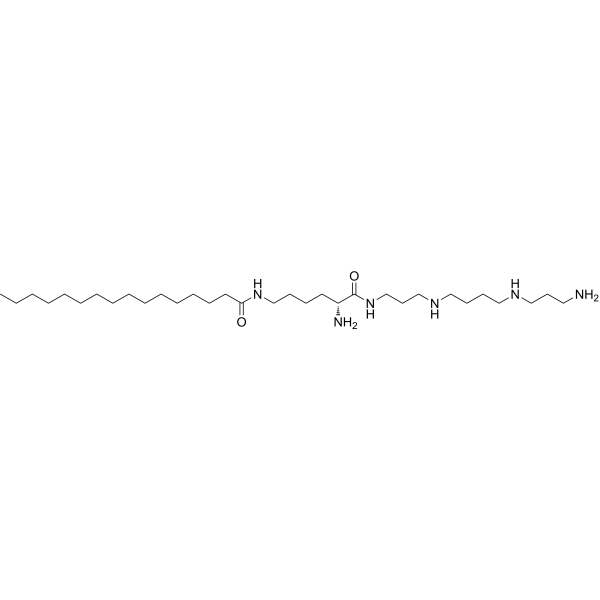
-
- HY-148839
-
|
|
c-Myc
|
Cancer
|
|
c-Myc inhibitor 9 (compound 332) is a c-Myc inhibitor with an logEC50 of ≥6. c-Myc inhibitor 9 inhibits tumor growth in nude mouse models. c-Myc inhibitor 9 can be used for cancer research .
|
-
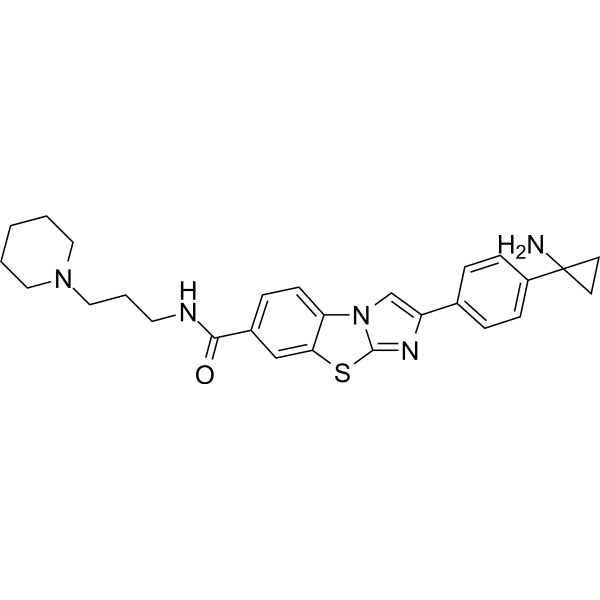
-
- HY-146452
-
|
|
Apoptosis
|
Cancer
|
|
Anticancer agent 57 (compound 14) potently inhibits MDA-MB-231, MDA-MB-468, and MCF-7 cell lines, with IC50s of 6.43 ~ 8.00 μM. Anticancer agent 57 induces cell cycle arrest and significantly promotes apoptosis. Anticancer agent 57 inhibits tumor growth in nude mice xenografted with MADMB-231 cells. Anticancer agent 57 can be used for researching triple negative breast cancer (TNBC) .
|
-
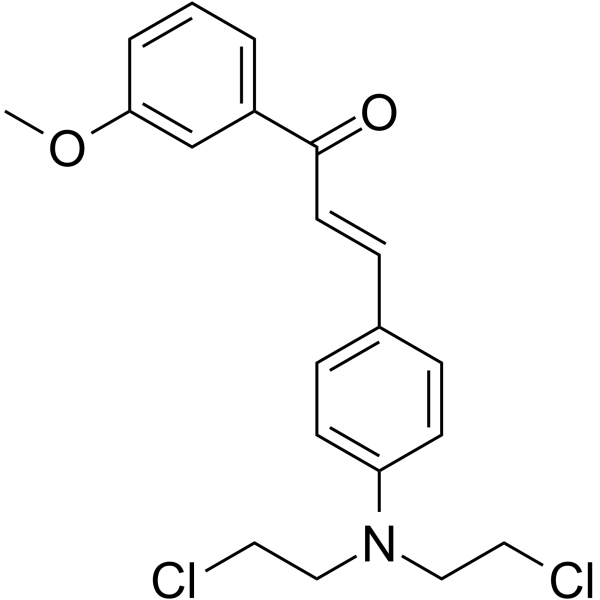
-
- HY-151155
-
|
|
Anaplastic lymphoma kinase (ALK)
|
Cancer
|
|
ALK-IN-23 is a potent ALK inhibitor with IC50 values of 1.6 nM, 0.71 nM and 1.3 nM for ALK WT, ALK L1196M and ALK G1202R. ALK-IN-23 can block cell cycle in G2 phase and induce apoptosis. ALK-IN-23 inhibits cancer cell migration and colony formation in vitro. ALK-IN-23 exhibits antitumor activity in H2228 xenograft nude mice model with hypotoxicity .
|
-
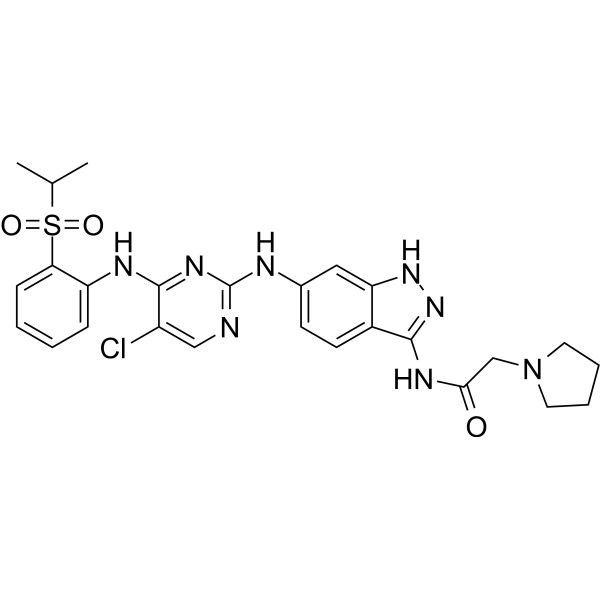
-
- HY-113889
-
|
|
Progesterone Receptor
|
Cancer
|
|
ZK112993 is a potent progesterone receptor (PR) antagonist. ZK112993 significantly inhibits the growth of T61 human tumors in nude mice .
|
-
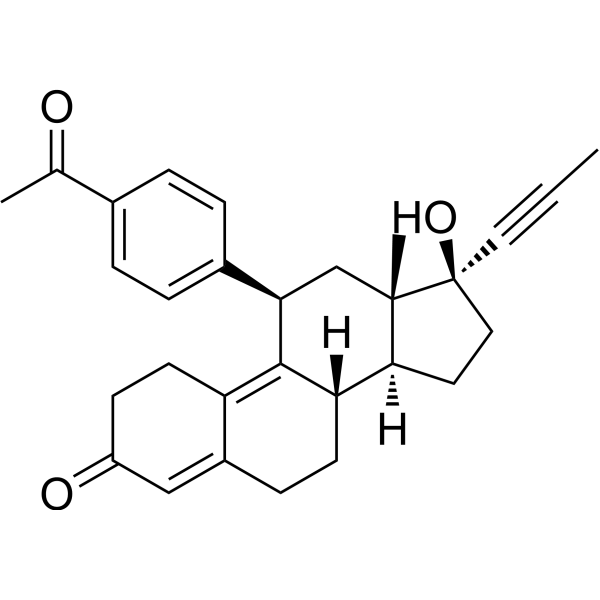
-
- HY-158006
-
|
|
MetAP
|
Cancer
|
|
SDX-7539 is a selective inhibitor for Methionine aminopeptidase type 2 (MetAP2). SDX-7539 inhibits proliferarion of HUVECs with an IC50 of 120 μM. SDX-7539 exhibits antitumor activity in NSCLC xenograft athymic nude mice .
|
-
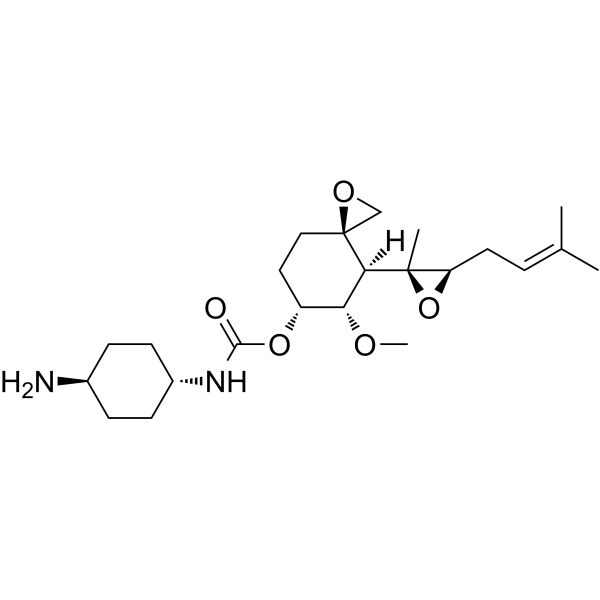
-
- HY-157085
-
|
|
HSP
|
Cancer
|
|
BX-2819 is a Hsp90 inhibitor with an IC50 value of 41 nM. BX-2819 inhibits the proliferation of cancer cells. BX-2819 can significantly inhibit the growth of NCI-N87 and HT-29 tumors in nude mice .
|
-
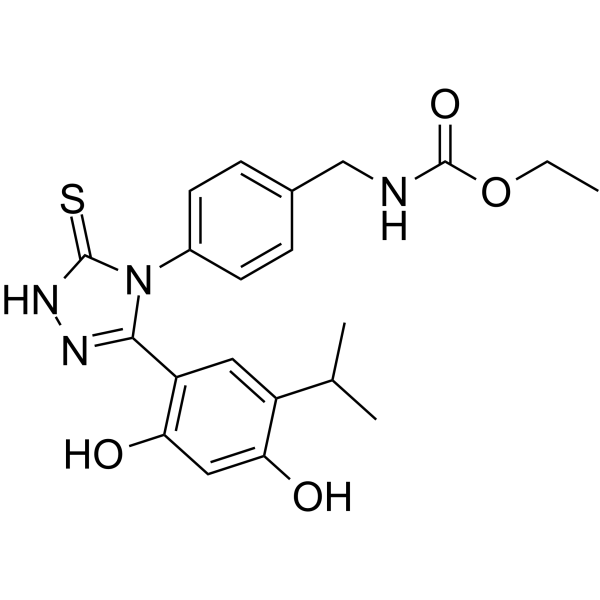
-
- HY-124617A
-
|
|
Apoptosis
|
Inflammation/Immunology
Cancer
|
|
AMXT-1501 tetrahydrochloride is an orally active polyamine transport inhibitor. AMXT1501 blocks tumor growth in immunocompetent mice but not in athymic nude mice lacking T cells . Combination of DFMO and AMXT‐1501 induces caspase‐3 mediated apoptosis in NB cell lines .
|
-
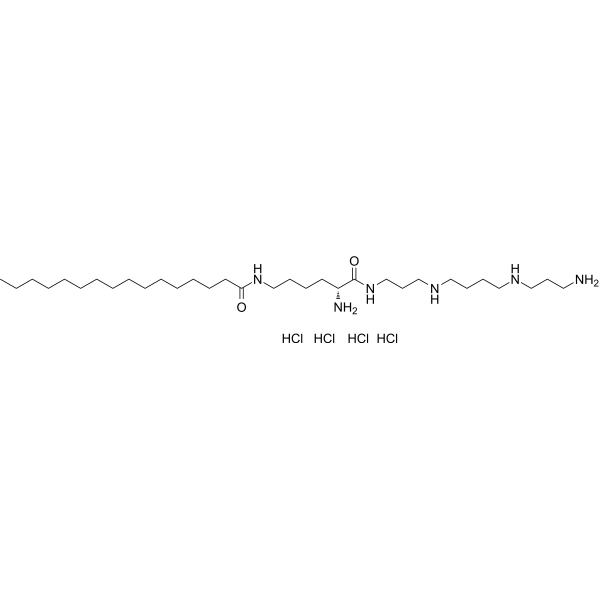
-
- HY-148413
-
|
ISIS 3521 sodium
|
PKC
|
Cancer
|
|
Aprinocarsen (ISIS 3521) sodium, a specific antisense oligonucleotide inhibitor of protein kinase C-alpha (PKC-α). Aprinocarsen sodium is a 20-mer oligonucleotide, it regulates cell differentiation and proliferation. Aprinocarsen sodium inhibits the growth of human tumor cell lines in nude mice. Aprinocarsen sodium shows the value as a chemotherapeutic compound of human cancers .
|
-
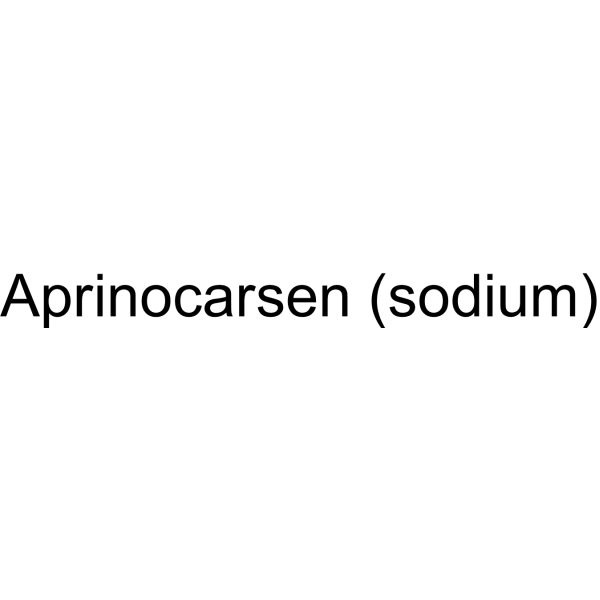
-
- HY-118032
-
|
|
Apoptosis
Autophagy
JNK
ERK
|
Cancer
|
|
Bozepinib is a PKR (RNA-dependent protein kinase) activator and potently inhibits the HER-2 signaling pathway as well as JNK and ERK kinases. Bozepinib induces PKR-mediated apoptosis and synergizes with IFNα to trigger apoptosis, autophagy and senescence. Bozepinib also demonstrates in vivo antitumor and antimetastatic efficacy in xenografted nude mice .
|
-
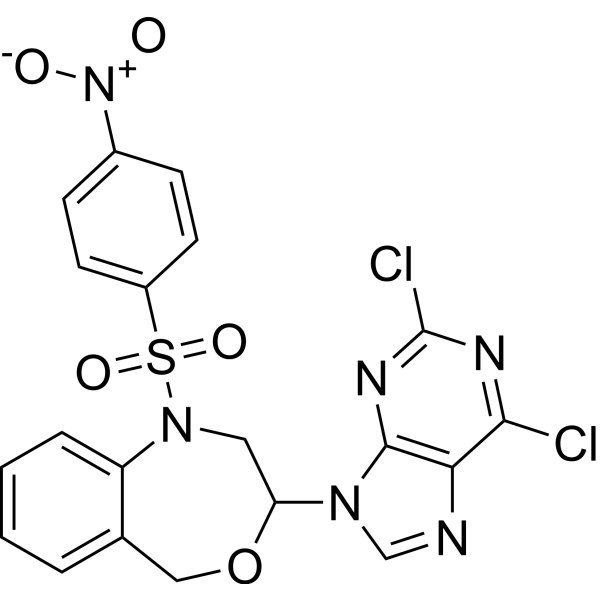
-
- HY-146505
-
|
|
Microtubule/Tubulin
Apoptosis
Reactive Oxygen Species
|
Cancer
|
|
Tubulin polymerization-IN-6 (compound 5f) is a potent tubulin polymerization inhibitor, with an IC50 of 1.09 μM. Tubulin polymerization-IN-6 inhibits cell migration and tube formation and contributes to the anti-angiogenesis. Tubulin polymerization-IN-6 can greatly inhibit tumor growth on HT29 xenograft Balb/c nude mice .
|
-
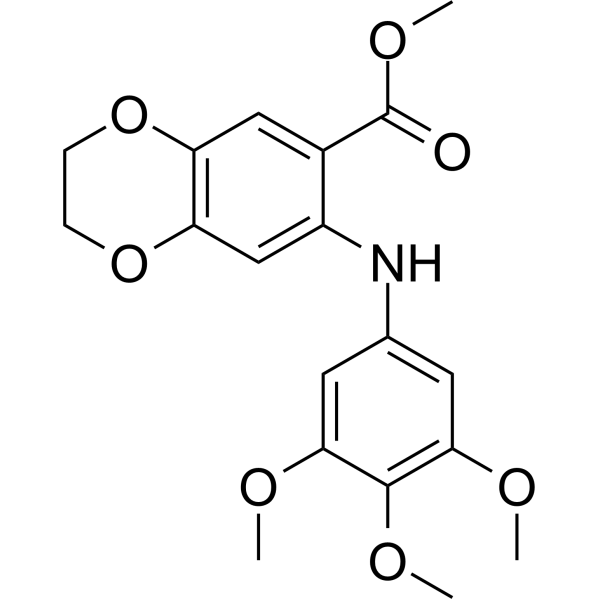
-
- HY-146354
-
|
|
Apoptosis
Reactive Oxygen Species
|
Cancer
|
|
Antiproliferative agent-4 (compound 2y) has excellent anti-proliferative activity against certain cancer cell lines. Antiproliferative agent-4 reduces the mitochondrial membrane potential, and increases the apoptosis rate and the level of ROS on EC109. Antiproliferative agent-4 inhibits tumour growth in nude mice, with low toxicity .
|
-
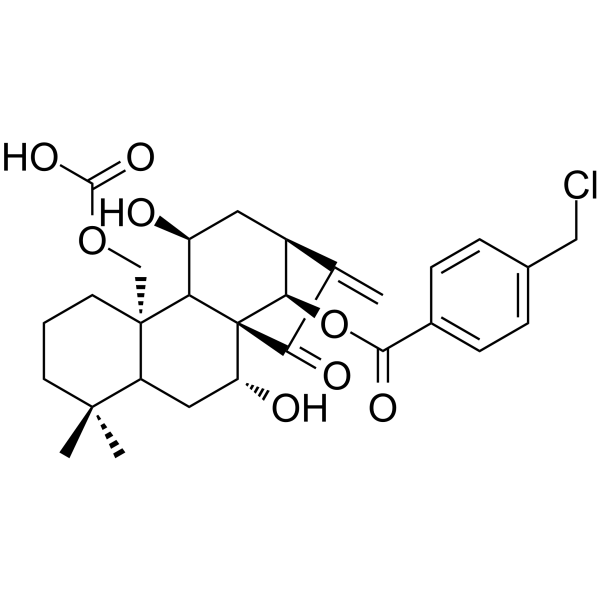
-
- HY-118717
-
|
|
mTOR
|
Cancer
|
|
mTOR inhibitor WYE-28 (compound 28) is a selective inhibitor of mTOR>/b< (IC50)=0.08 nM. mTOR inhibitor WYE-28 inhibits PI3Kα with an IC50 value of 6 nM. mTOR inhibitor WYE-28 shows a metabolic time (T1/2) in nude mouse microsomes of 13 min .
|
-
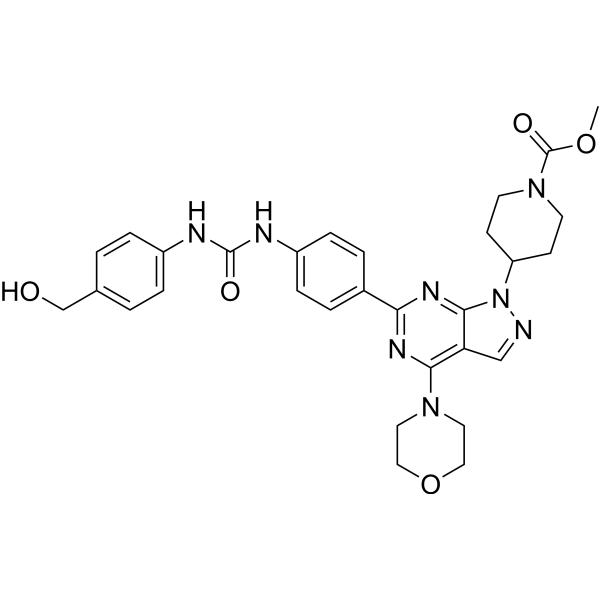
-
- HY-155032
-
|
|
P-glycoprotein
|
Cancer
|
|
P-gp inhibitor 15 (compound 7a) is a nonsubstrate inhibitor of P-glycoprotein (Pgp). P-gp inhibitor 15 inhibits Pgp-ATPase activity,and interfers Pgp-mediated Rhodamine123 efflux. P-gp inhibitor 15 also enhances the inhibitory efficacy of Paclitaxel (HY-B0015),inhibits tumor progress in nude mice KBV xenograft tumors model .
|
-
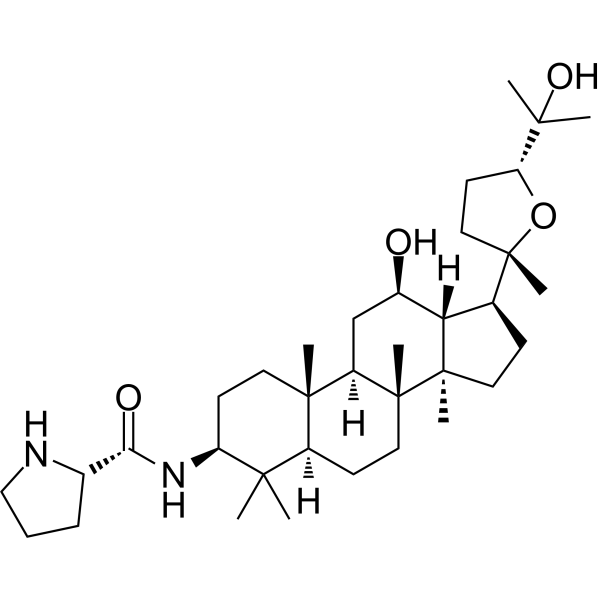
-
- HY-D1460
-
|
|
Bacterial
|
Infection
|
|
Fluorescein Di-β-D-Glucuronide, a fluorescent probe, can be utilized to non-invasively image the intestinal bacterial β-glucuronidase activity in nude mice. Fluorescein Di-β-D-Glucuronide-based imaging reveals the in vitro and in vivo activity of intestinal bacterial β-glucuronidase, which would facilitate pharmacodynamic studies of specific bacterial β-glucuronidase inhibitors in animal studies .
|
-
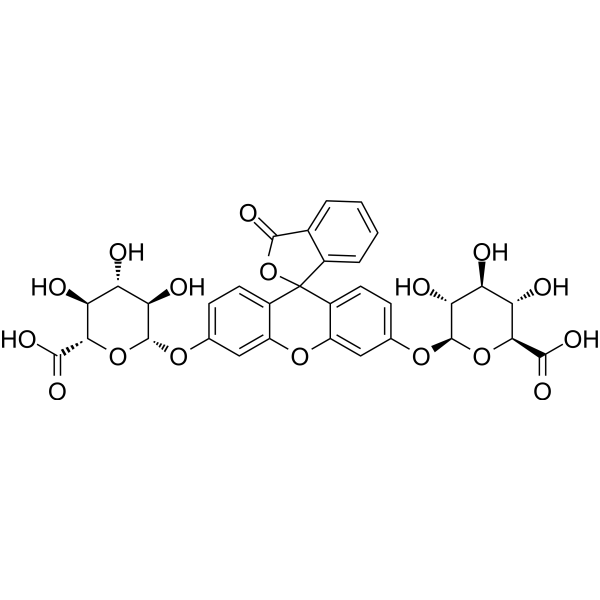
-
- HY-163001
-
|
|
Autophagy
p62
Atg8/LC3
|
Cancer
|
|
Microcolin H is a marine lipopeptide and phosphatidylinositol transfer protein ligand that targets PITPα/β. Microcolin H increases the conversion of LC3I to LC3II and reduces p62 levels in cancer cells, leading to autophagy cell death (Autophagy). Microcolin H effectively inhibits tumor development and has anti-proliferative activity in nude mouse subcutaneous tumor models .
|
-
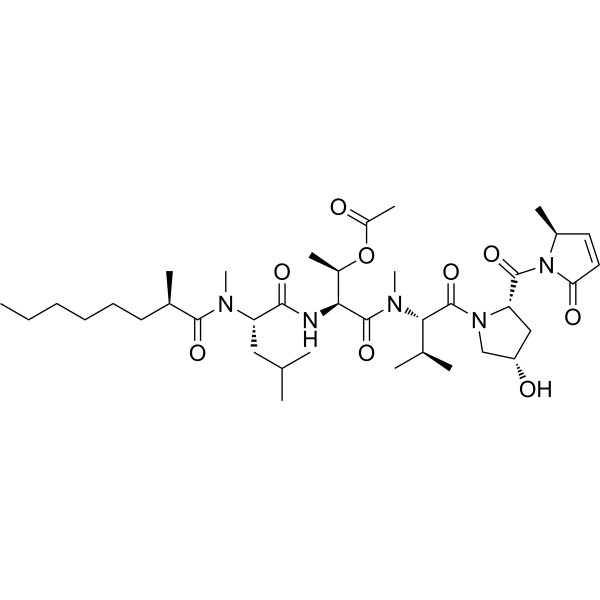
-
- HY-144786
-
|
|
Microtubule/Tubulin
Apoptosis
|
Cancer
|
|
Tubulin polymerization-IN-4 is a potent tubulin polymerization inhibitor with IC50 value of 4.6 μM. Tubulin polymerization-IN-4 can disrupt tubulin polymerization and vasculature, arrest the cell cycle at the G2/M phase, induce apoptosis, and suppress clonogenesis and migration in HeLa cells. Tubulin polymerization-IN-4 can be used for researching cervical cancer .
|
-
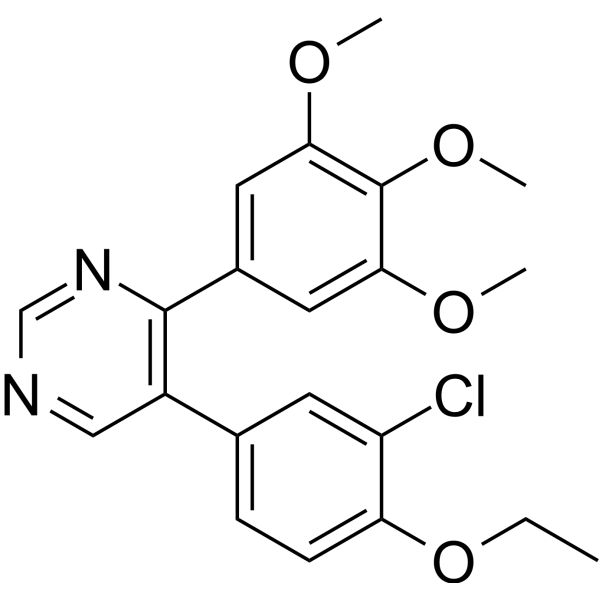
-
- HY-15096
-
|
FJ-776
|
Fluorescent Dye
HSP
|
Cancer
|
|
MKT-077 (FJ-776), a highly water-soluble mitochondrial dye, has significant antitumor activity . MKT-077 exhibits low cytotoxicity, and inhibits broad-spectrum human cancer cell lines (colon cancer, breast cancer, pancreatic cancer). MKT-077 inhibits the growth of tumor in nude mice enograft tumor model. Ex/Em=488/543 nm .
|
-
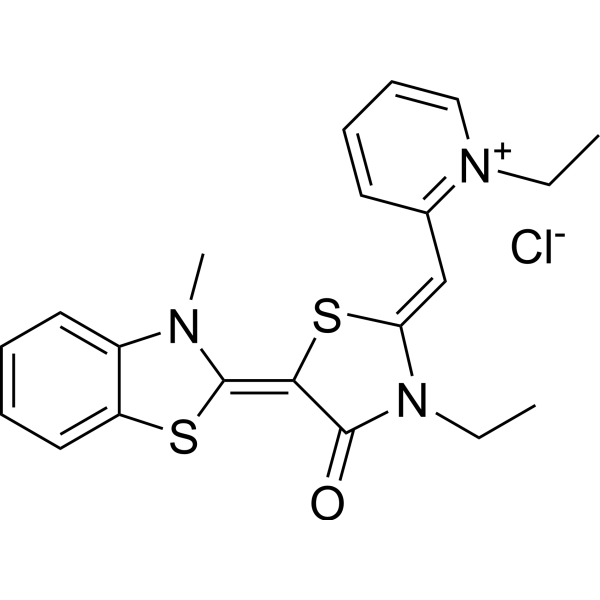
-
- HY-108790
-
|
Peginterferon β-1a
|
Apoptosis
|
Neurological Disease
Cancer
|
|
Peginterferon beta-1a (Peginterferon β-1a) is the first pegylated interferon beta-1a molecule. Peginterferon beta-1a induces cancer cells apoptosis and shows anti-tumor activities in nude mice models. Peginterferon beta-1a can be used for the research of cancer and multiple sclerosis (RMS) .
|
-

-
- HY-149092
-
|
|
TAM Receptor
|
Cancer
|
|
Anticancer agent 109 (compound 6-15) is an inhibitor of the Gas6-Axl axis with anti-cancer activity. Anticancer agent 109 inhibits the expression of Gas6 and Axl, and the expression p-PI3K and p-AKT in cancer cells, leads to G1 phase arrest and promotes cancer cells apoptosis, and inhibits tumor growth significantly in nude mouse tumor bearing models .
|
-
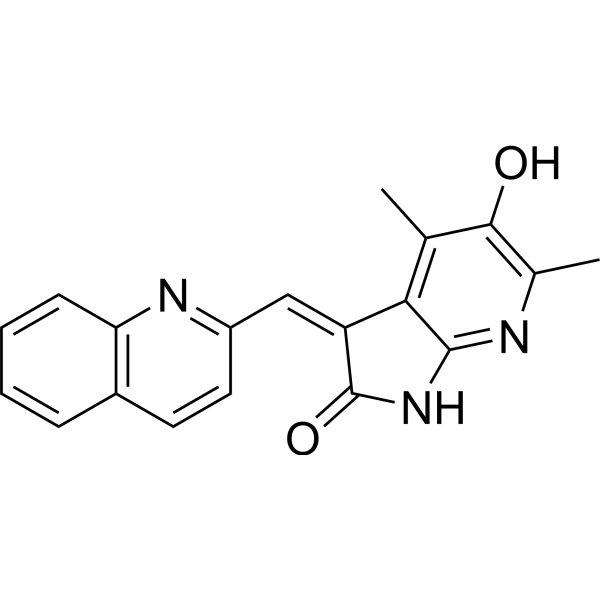
-
- HY-107336
-
|
Beveno
|
COX
|
Inflammation/Immunology
|
|
Cyclovalone (Beveno) is a synthetic curcumin derivate, which inihibits cyclooxygenase and exhibits anti-inflammatory, antitumor and antioxidant activities . Cyclovalone inhibits cell proliferation in normal and malignant prostatic cells. Cyclovalone ist orally active .
|
-
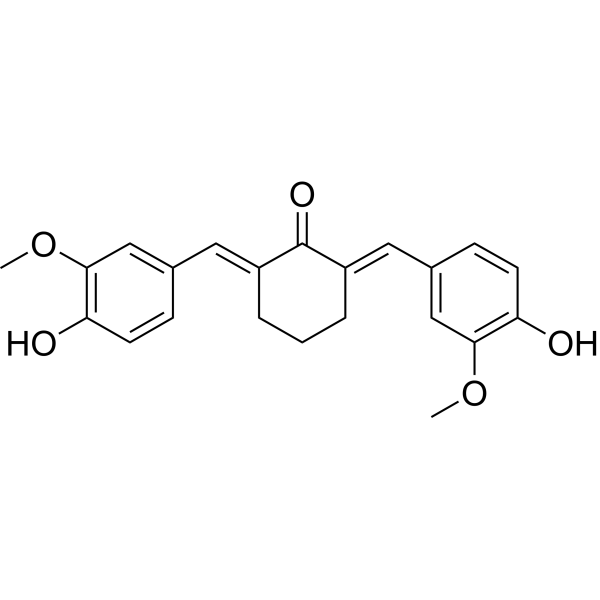
-
- HY-146054
-
|
|
CXCR
|
Inflammation/Immunology
|
|
CXCR4 modulator-2 (compound Z7R) is a highly potent CXCR4 modulator with an IC50 value of 1.25 nM. CXCR4 modulator-2 has acceptable stability (t1/2 = 77.1 min) in mouse serum and exhibits anti-inflammatory activity in mouse edema model .
|
-
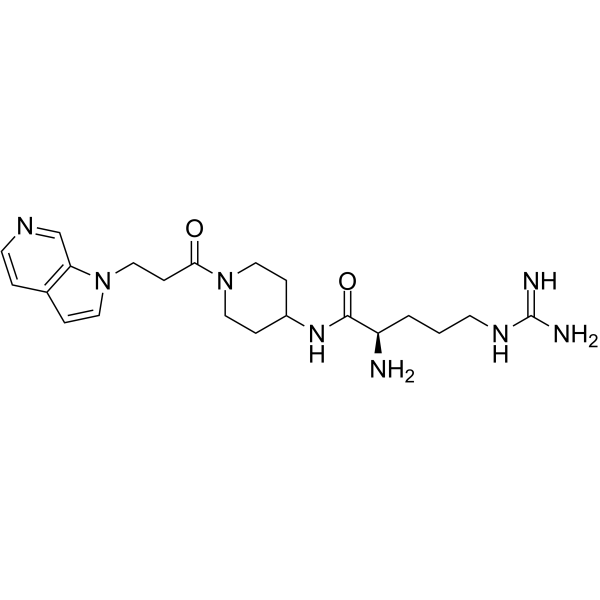
-
- HY-152104
-
|
|
FGFR
|
Cancer
|
|
FGFR-IN-9 (Compound 19) is a potent, reversible and orally active FGFR inhibitor with an IC50 of 17.1, 29.6, 30.7, 46.7 and 64.3 nM against FGFR4 WT, FGFR3, FGFR4 V550L, FGFR2 and FGFR1, respectively .
|
-
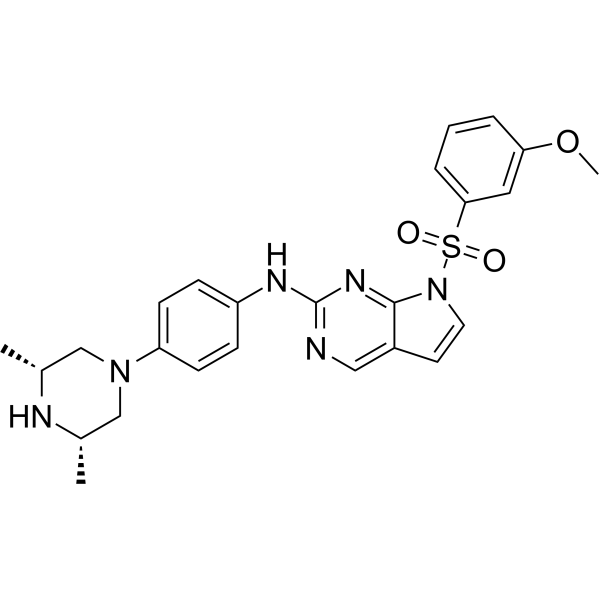
-
- HY-115552
-
|
|
PARP
|
Cancer
|
|
Simmiparib is a highly potent and orally active PARP1 and PARP2 inhibitor with IC50 values of 1.75 nM and 0.22 nM, respectively. Simmiparib has more potent PARP1/2 inhibition than its parent Olaparib (HY-10162). Simmiparib induces DNA double-strand breaks (DSB) accumulation and G2/M arrest in homologous recombination repair (HR)-deficient cells, thereby inducing apoptosis. Simmiparib exhibits remarkable anticancer activities in cells and nude mice bearing xenografts .
|
-
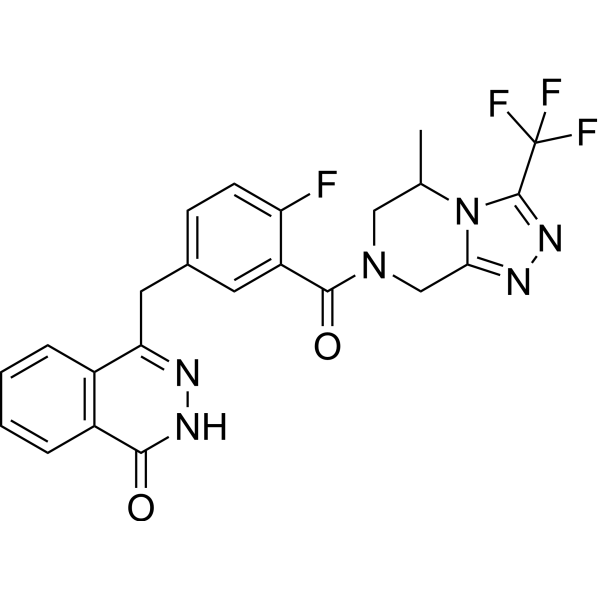
-
- HY-149208
-
|
|
HDAC
Apoptosis
|
Cancer
|
HDAC-IN-53 is an orally active, and selective HDAC1-3 inhibitor with IC50 values of 47 nM, 125 nM, and 450 nM, respectively. HDAC-IN-53 does not inhibit class II HDACs (HDAC4, 5, 6, 7, 9; IC50>10 μM). HDAC-IN-53 induces caspase-dependent apoptosis. HDAC-IN-53 significantly inhibits the growth of human tumor xenografts in nude mice and murine tumor growth in immune-competent mice bearing MC38 colon cancer .
|
-
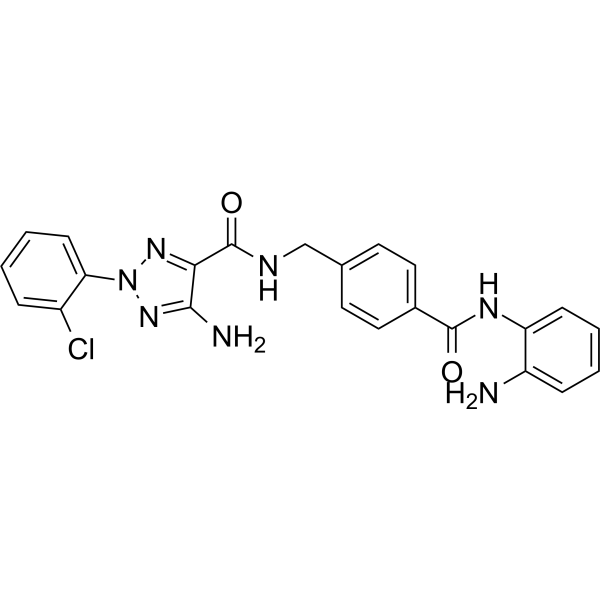
-
- HY-157169
-
|
AMU302
|
Pim
mTOR
Akt
PI3K
|
Cancer
|
|
IBL-302 (AMU302) is an orally available dual-signaling inhibitor of PIM and PI3K/AKT/mTOR with activity against breast cancer and neuroblastoma. IBL-302 demonstrated in vivo efficacy in a nude mouse xenograft model, inhibiting trastuzumab (HY-P9907) resistance challenges. IBL-302 also enhances the effects of common cytotoxic chemotherapy drugs cisplatin (HY-17394), doxorubicin (HY-15142A), and etoposide (HY-13629) .
|
-
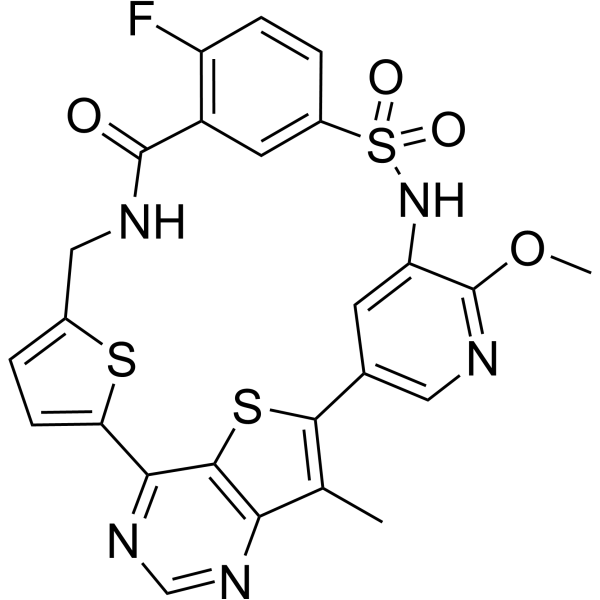
-
- HY-146261
-
|
|
Microtubule/Tubulin
Indoleamine 2,3-Dioxygenase (IDO)
Apoptosis
|
Cancer
|
|
HI5 is a potent tublin and IDO inhibitor, with an IC50 value of 70 nM in HeLa cells. HI5 inhibit IDO expression and decrease kynurenine production, leading to stimulating T cells activation and proliferation. HI5 can inhibit tubulin polymerization and cell migration, cause G2/M phase arrest, and induce apoptosis via the mitochondrial dependent apoptosis pathway and cause reactive oxidative stress generation in HeLa cells. HI5 can be used for researching anticancer .
|
-
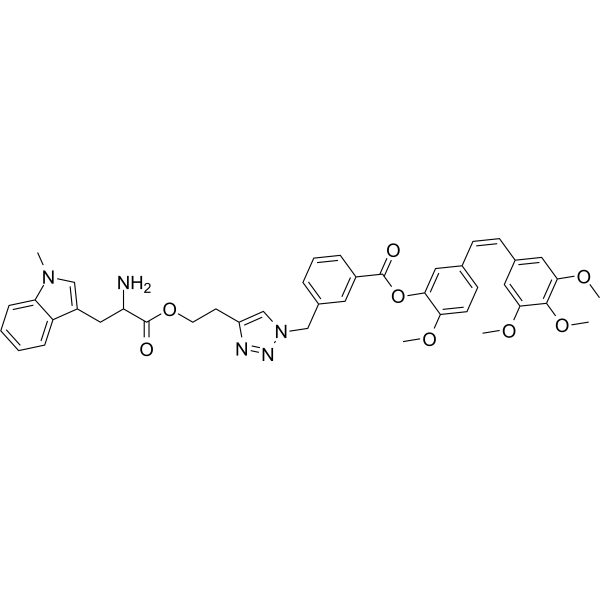
-
- HY-150755
-
|
|
Topoisomerase
COX
Apoptosis
Reactive Oxygen Species
|
Cancer
|
|
Topo I/COX-2-IN-2 (Compound W10) is a potent dual-target inhibitor of Topo I and COX-2 with IC50 values of 0.90 μM and 2.31 μM, respectively. Topo I/COX-2-IN-2 induces cancer cell apoptosis through the mitochondrial pathway .
|
-
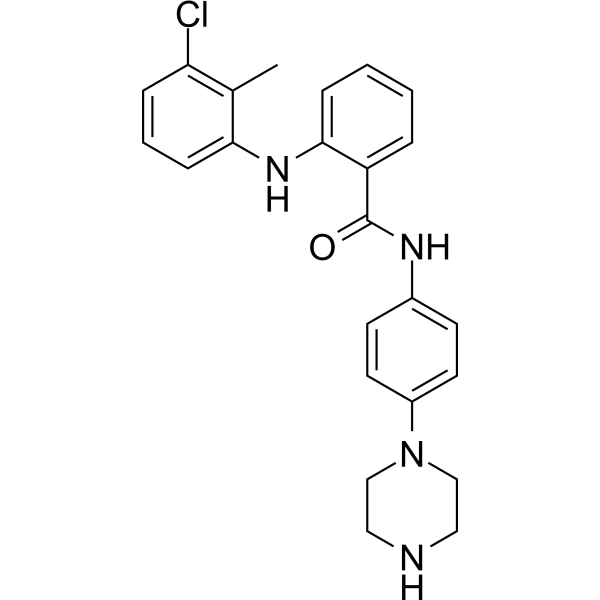
-
- HY-151462
-
|
|
DNA/RNA Synthesis
|
Cancer
|
|
RP-6685 is a potent, selective and orally active DNA polymerase theta (Polθ) inhibitor with an IC50 value of 5.8 nM (PicoGreen assay). RP-6685 shows antitumor efficacy in mouse tumor xenograft model . RP-6685 is a click chemistry reagent, it contains an Alkyne group and can undergo copper-catalyzed azide-alkyne cycloaddition (CuAAc) with molecules containing Azide groups.
|
-
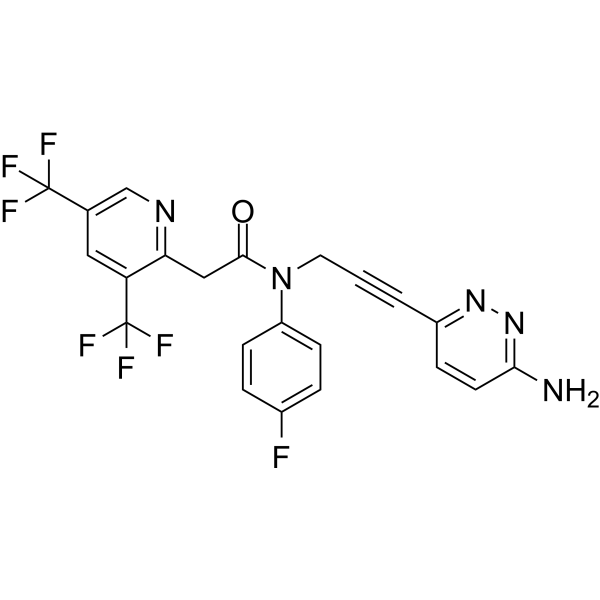
-
- HY-121065
-
|
IRC-083065
|
Phosphatase
|
Cancer
|
|
BN-82685 is a a quinone-based CDC25 inhibitor with IC50 of 201 nM, 117 nM, 109 nM, 160 nM, 249 nM, for CDC25C, CDC25C-cat, CDC25A, CDC25B2, CDC25B3, respectively. BN-82685 plays an important role in cancer research .
|
-
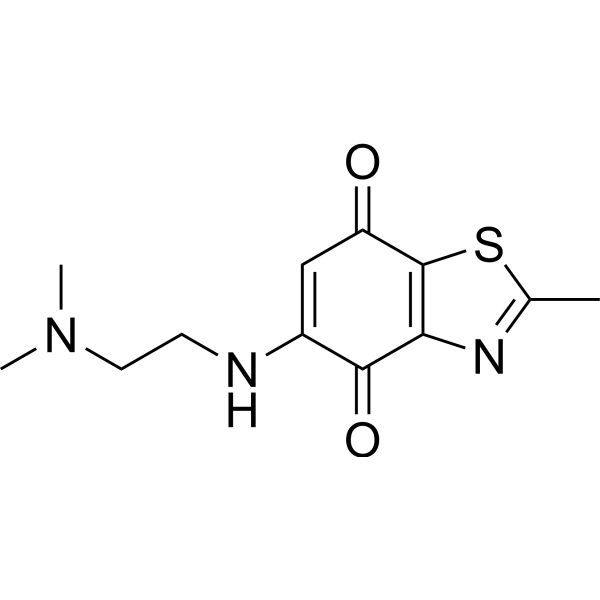
-
- HY-111784
-
|
CCS1477
|
Epigenetic Reader Domain
|
Cancer
|
|
Inobrodib (CCS1477) is an orally active, potent, and selective inhibitor of the p300/CBP bromodomain. Inobrodib binds to p300 and CBP with Kd values of 1.3 and 1.7 nM, respectively, and with 170/130-fold selectivity compared with BRD4 with a Kd of 222 nM. CCS1477 inhibits cell proliferation in prostate cancer cell lines and decreases androgen receptor (AR)- and C-MYC-regulated gene expression .
|
-
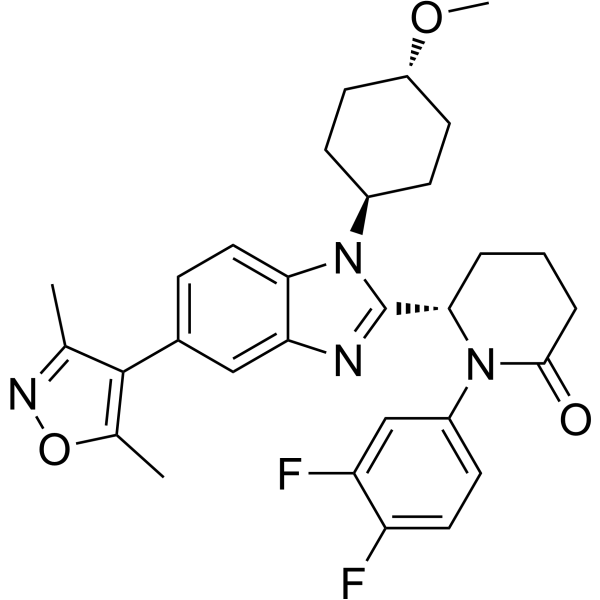
-
- HY-114311
-
|
|
FGFR
Discoidin Domain Receptor
|
Cancer
|
|
FGFR1/DDR2 inhibitor 1 is an orally active inhibitor of fibroblast growth factor receptor 1 (FGFR1) and discoindin domain receptor 2 (DDR2), with IC50 values of 31.1 nM and 3.2 nM, respectively. Antitumor activity .
|
-
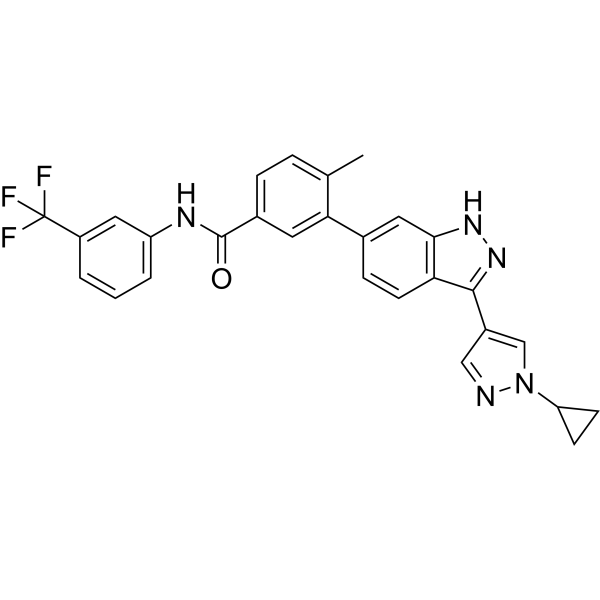
-
- HY-132231
-
|
|
PI3K
Apoptosis
|
Cancer
|
|
FD223 is a potent and selective phosphoinositide 3-kinase delta (PI3Kδ) inhibitor. FD223 displays high potency (IC50=1 nM) and good selectivity over other isoforms (IC50s of 51 nM, 29 nM and 37 nM, respectively for α, β and γ). FD223 exhibits efficient inhibition of the proliferation of acute myeloid leukemia (AML) cell lines by suppressing p-AKT Ser473 thus causing G1 phase arrest during the cell cycle. FD223 has potential for the research of leukemia such as AML .
|
-
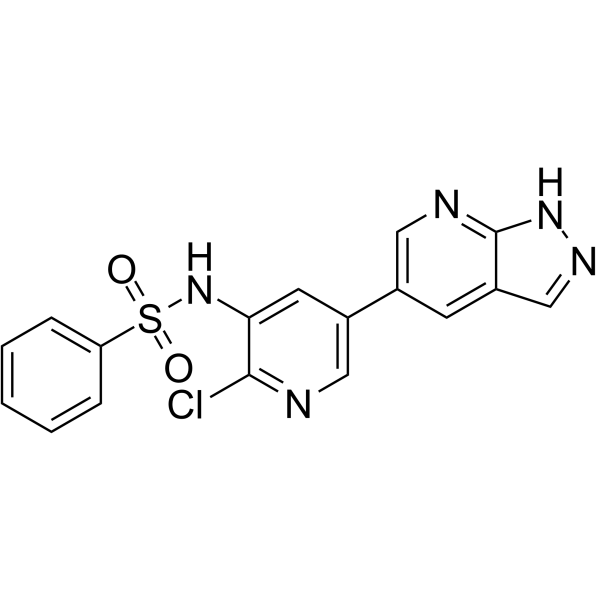
-
- HY-151881
-
|
|
Ras
|
Cancer
|
|
SOS1-IN-15 (Compound 37) is an orally active SOS1 inhibitor with an IC50 of 5 nM. SOS1-IN-15 is a promising agent candidate for the research of KRAS-driven cancer .
|
-
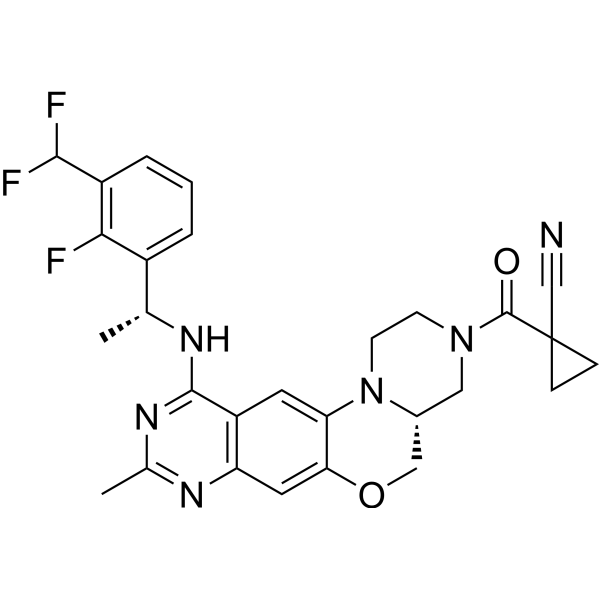
-
- HY-149927
-
|
|
Others
|
Cancer
|
|
Antitumor agent-91 is a cyclic phosphate ester derivative with anticancer and anti-proliferative activities. Antitumor agent-91 has potential application in human castration resistant prostate cancer and pancreatic cancer .
|
-
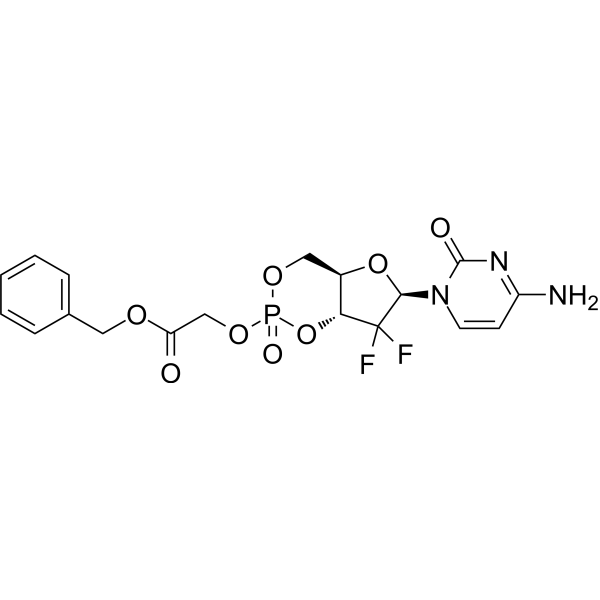
-
- HY-156083
-
|
|
CDK
|
Cancer
|
|
PROTAC CDK9/CycT1 Degrader-1 (compounds 10) is a potent inhibitor of CDK9. PROTAC CDK9/CycT1 Degrader-1 can be used as a PROTAC target protein ligand for PROTAC synthesis. PROTAC CDK9/CycT1 Degrader-1 shows strong anti-proliferative activity in solid tumors .
|
-
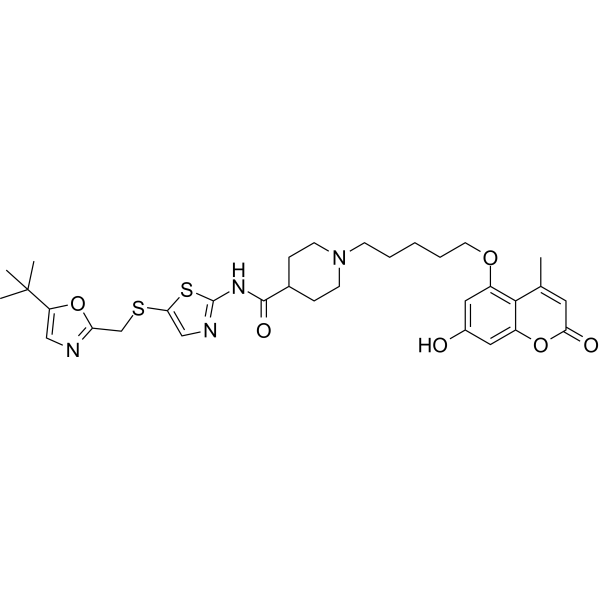
-
- HY-162357
-
|
|
PD-1/PD-L1
|
Cancer
|
|
PD-L1-IN-5 (X22) is an orally active PD-L1 inhibitor, with the IC50 value of 785.6 nM. PD-L1-IN-5 has anti-tumor activity in vivo .
|
-
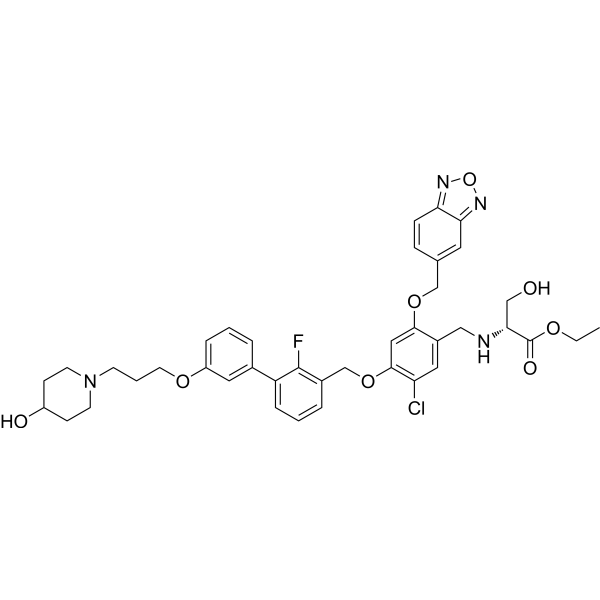
-
- HY-149401
-
|
|
EGFR
|
Cancer
|
|
EGFR-IN-82 (Cmpound 8a) is a potent and orally active EGFR inhibitor with IC50 values of 0.09 and 0.06 nM for EGFR L858R/T790M/C797S and EGFR Del19/T790M/C797S, respectively. EGFR-IN-82 has no significant effect on EGFR WT. EGFR-IN-82 has anti-proliferative activity and inhibits tumor formation in nude mice. EGFR-IN-82 can be used in non-small cell lung cancer research .
|
-
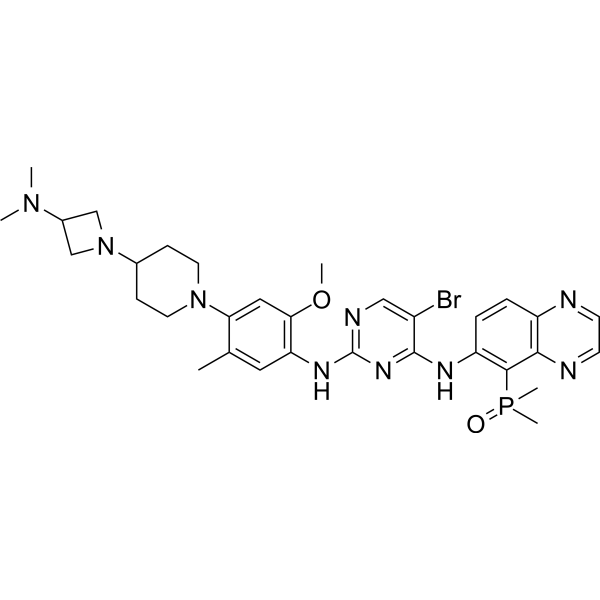
-
- HY-136789
-
|
BDTX-189
|
EGFR
|
Cancer
|
|
Tuxobertinib (BDTX-189) is a potent, orally active and selective inhibitor of allosteric EGFR and HER2 oncogenic mutations, including EGFR/HER2 exon 20 insertion mutants. Tuxobertinib shows KDs of 0.2, 0.76, 13 and 1.2 nM for EGFR, HER2, BLK and RIPK2, reapectively. Anticancer activity .
|
-
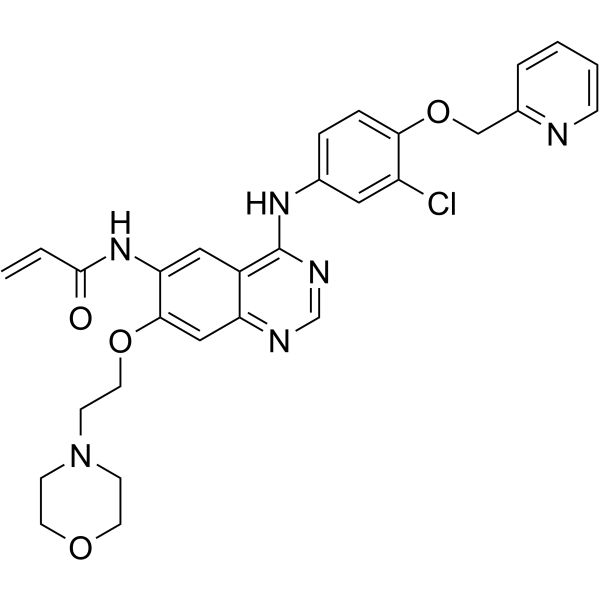
-
- HY-10620
-
|
|
PI3K
mTOR
|
Cancer
|
|
PI3K-IN-22 is a PI3Kα/mTOR dual kinase inhibitor. PI3K-IN-22 has IC50s of 0.9, 0.6 nM for PI3Kα and mTOR, respectively. PI3K-IN-22 can be used for the research of cancer .
|
-
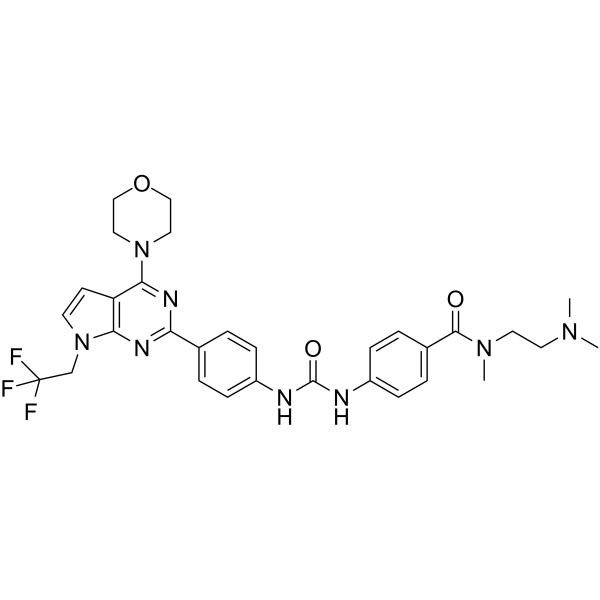
-
- HY-143443
-
|
|
Histone Acetyltransferase
Histone Demethylase
|
Cancer
|
|
DS17701585 (Compound 11) is a highly selective, orally active EP300 and CBP inhibitor with IC50 values of 0.040, 0.15, 0.45 and 0.70 µM against CBP, EP300, H3K27 and SOX2. DS17701585 can be used for cancer research .
|
-
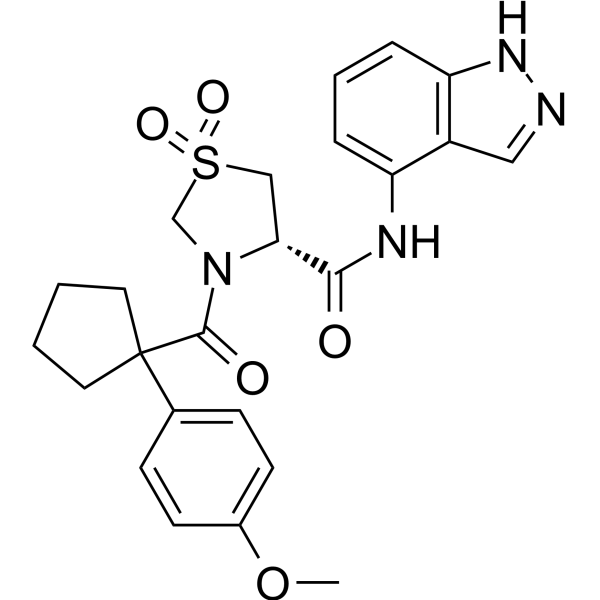
-
- HY-153065
-
|
|
Microtubule/Tubulin
|
Cancer
|
|
KIF18A-IN-6 (Compound 134) is an orally active KIF18A inhibitor with an IC50 of 0.016 μM against KIF18A microtubule-dependent ATPase activity .
|
-
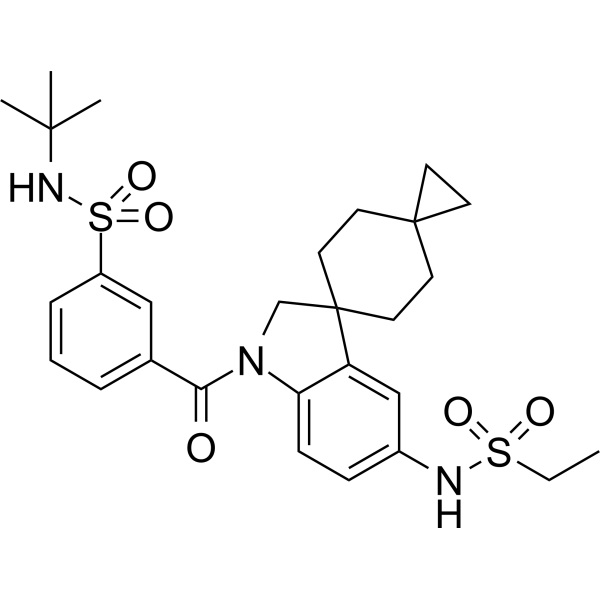
-
- HY-153066
-
|
|
Microtubule/Tubulin
|
Cancer
|
|
KIF18A-IN-7 (Compound 22) is an orally active KIF18A inhibitor with an IC50 of 9.4 nM against KIF18A microtubule-dependent ATPase activity .
|
-
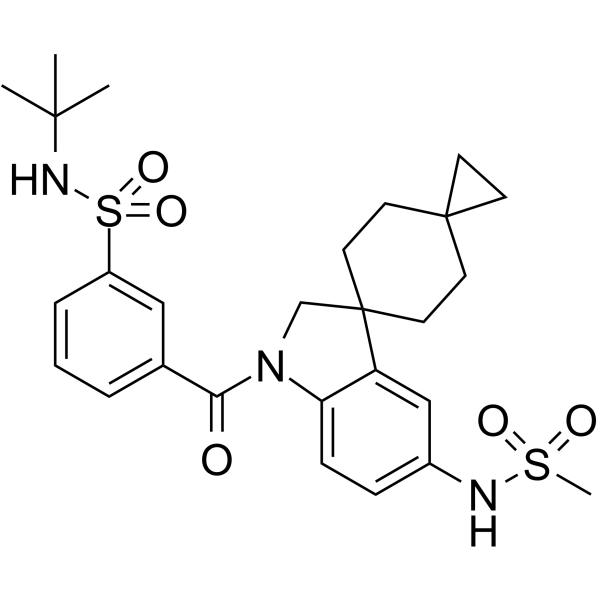
-
- HY-163195
-
|
|
Microtubule/Tubulin
|
Cancer
|
|
Tubulin inhibitor 40 (compound 45) is a tubulin inhibitor with IC50 of 1.2 μM. Tubulin inhibitor 40 shows selective cytotoxicity towards cancer cells. Tubulin inhibitor 40 processes antitumor activity .
|
-
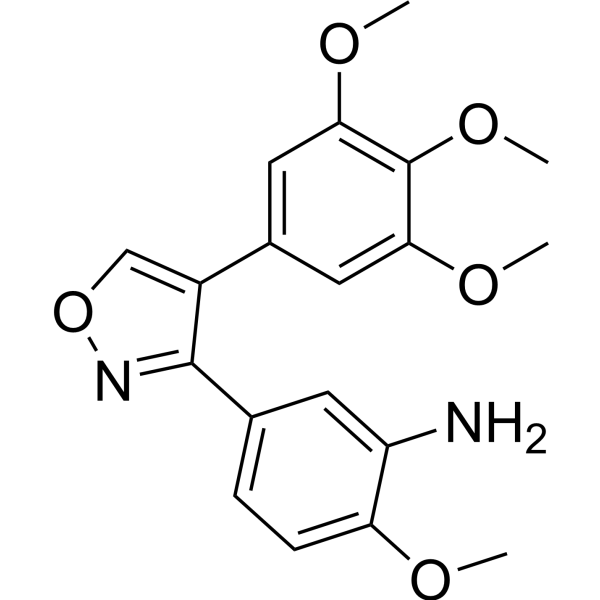
-
- HY-145836
-
|
|
FGFR
|
Cancer
|
|
FGFR4-IN-8 (Compound 7v) is an ATP-competitive, highly selective covalent inhibitor of wild-type and gatekeeper mutant FGFR4. FGFR4-IN-8 exhibits excellent potency against FGFR4, FGFR4 V550L, FGFR4 V550M and FGFR4 C552S with IC50s of 0.5, 0.25, 1.6, 931 nM, respectively. FGFR4-IN-8 exhibits potent antiproliferative activity against Hep3B hepatocellular carcinoma cells with the IC50 value of 29 nM. FGFR4-IN-8 demonstrates modest in vivo antitumor efficacy in nude mice bearing the Huh-7 xenograft model .
|
-
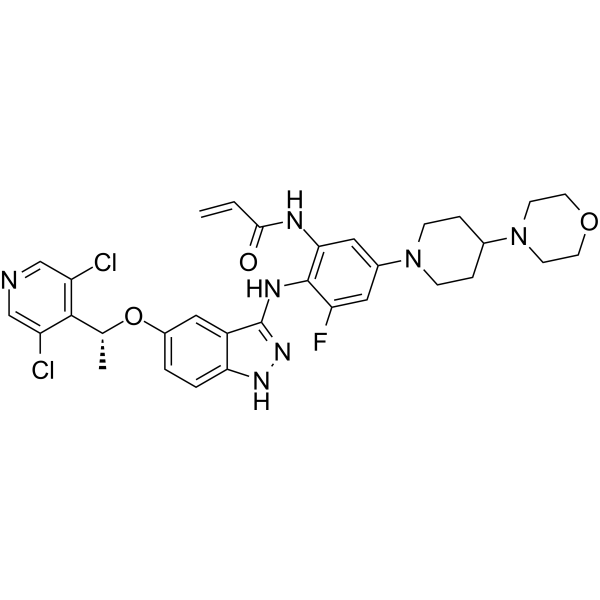
-
- HY-B1324
-
|
Ro 13-8996
|
Fungal
Cytochrome P450
Antibiotic
|
Infection
Cancer
|
|
Oxiconazole (Ro 13-8996) nitrate is a broad spectrum anti-fungal agent which can inhibit the growth of Candida, Aspergillus and Trichophyton. Oxiconazole nitrate is also a highly efficacious activator of CYP3A4 transactivation, which could be antagonized by Rifampicin (HY-B0272) in a competitive manner. Oxiconazole nitrate exhibits inhibitory effect against colorectal cancer (CRC) via peroxiredoxin-2 (PRDX2)-mediated autophagy arrest .
|
-
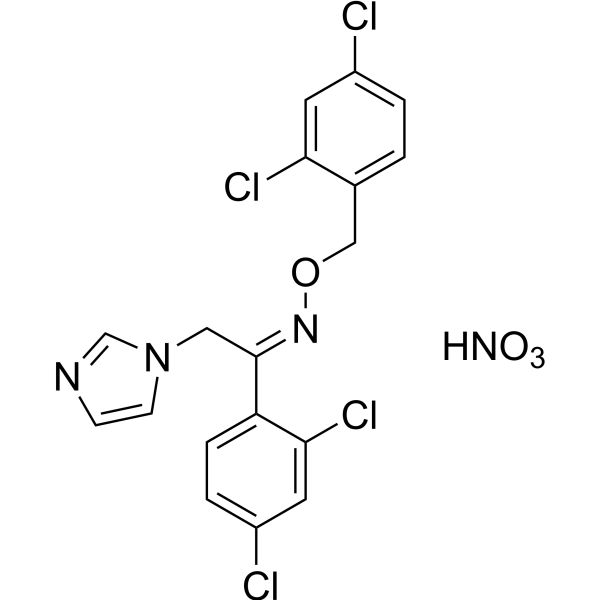
-
- HY-N6693
-
|
NSC 122023
|
Apoptosis
Antibiotic
Autophagy
Fungal
|
Infection
Others
Cancer
|
|
Valinomycin is a potassium-specific ionophore, the valinomycin-K + complex can be incorporated into biological bilayer membranes with the hydrophobic surface of valinomycin, destroys the normal K + gradient across the membrane, and as a result kills the cells, incorporating into liposomes can significantly reduces the cytotoxicity and enhances the targeting effect. Valinomycin exhibits antibiotic, antifungal, antiviral, antitumor and insecticidal efficacy, thus can be used for relevant research .
|
-
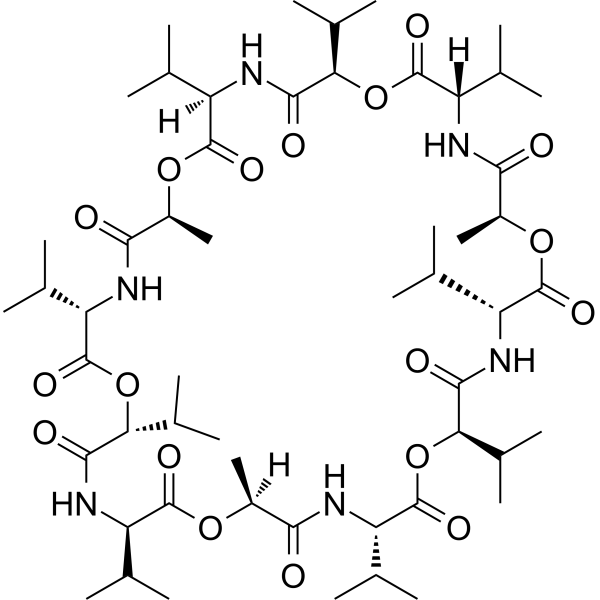
-
- HY-124675
-
MYCMI-6
1 Publications Verification
NSC354961
|
c-Myc
Apoptosis
|
Cancer
|
|
MYCMI-6 (NSC354961) is a potent and selective endogenous MYC:MAX protein interactions inhibitor. MYCMI-6 blocks MYC-driven transcription and binds selectively to the MYC bHLHZip domain with a Kd of 1.6 μM. MYCMI-6 inhibits tumor cell growth in a MYC-dependent manner (IC50<0.5 μM). MYCMI-6 is not cytotoxic to normal human cells. MYCMI-6 induces apoptosis .
|
-
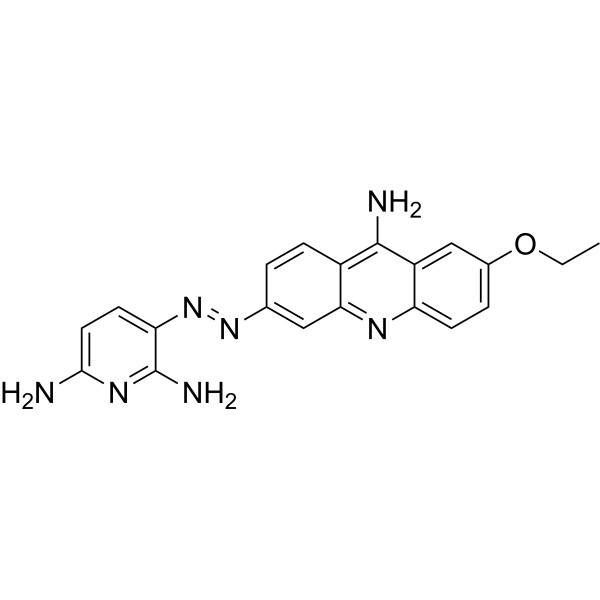
-
- HY-115996
-
|
|
Others
|
Cancer
|
|
Antitumor agent-51 possesses potent and selective inhibitory for osteosarcoma cell growth and migration with IC50 of 21.9 nM in MNNG/HOS cells. Antitumor agent-51 has a considerable bioavailability and a low toxicity .
|
-
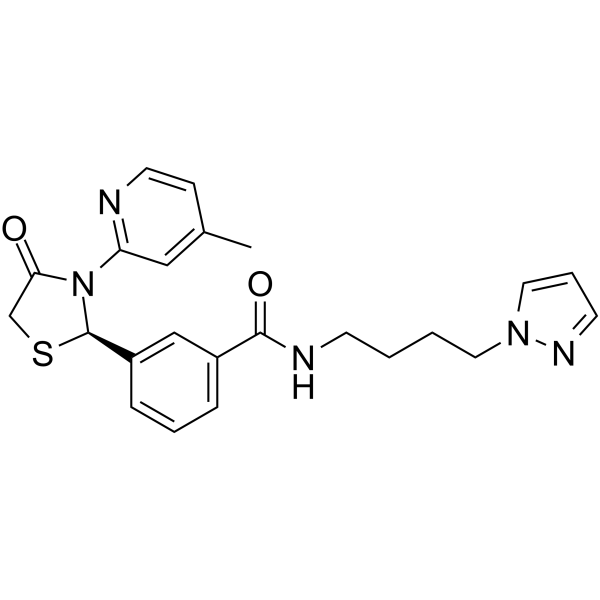
-
- HY-143411
-
|
|
HDAC
Apoptosis
DNA/RNA Synthesis
|
Cancer
|
|
GEM144 is a potent and orally active DNA polymerase α (POLA1) and HDAC 11 dual inhibitor. GEM144 induces acetylation of p53, activation of p21, G1/S cell cycle arrest, and apoptosis. GEM144 has significant antitumor activity in human orthotopic malignant pleural mesothelioma xenografts .
|
-
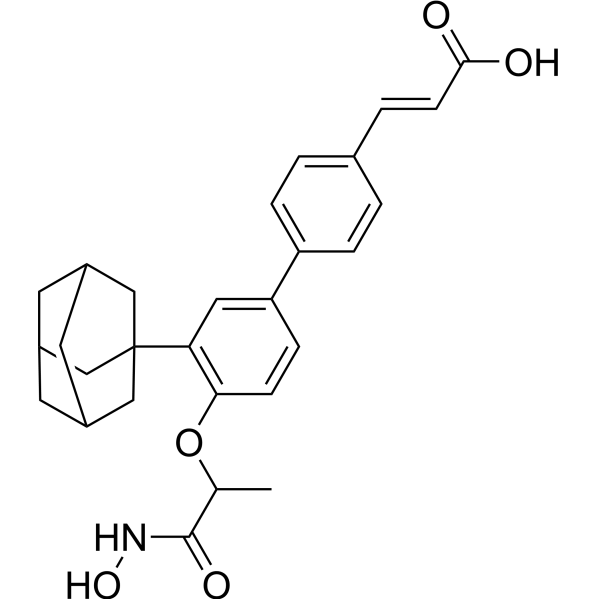
- HY-143497
-
|
|
HDAC
CDK
Apoptosis
|
Cancer
|
|
HDAC1/2 and CDK2-IN-1 (compound 14d) is a potent HDAC1, HDAC2 and CDK2 dual inhibitor, with IC50 values of 70.7, 23.1 and 0.80 μM, respectively. HDAC1/2 and CDK2-IN-1 can block the cell cycle and induce apoptosis. HDAC1/2 and CDK2-IN-1 exhibits desirable in vivo antitumor activity .
|
-
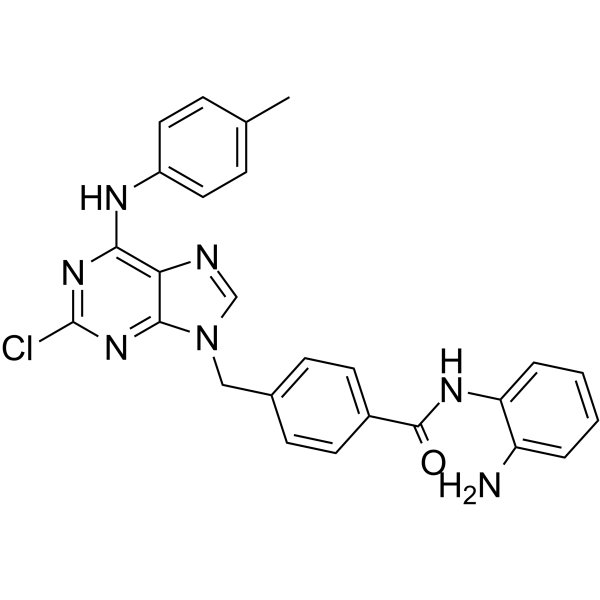
- HY-147322
-
|
|
YAP
|
Cancer
|
|
YAP/TAZ inhibitor-2 is a potent and orally active TEAD-YAP/TAZ inhibitor with an EC50 value of 3 nM. YAP/TAZ inhibitor-2 shows anti-proliferative activity. YAP/TAZ inhibitor-2 shows antitumor activity .
|
-
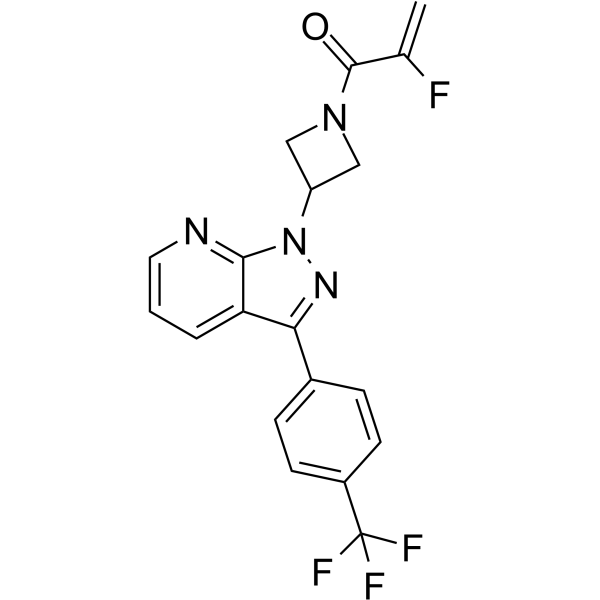
- HY-B1324A
-
|
Ro 13-8996 free base
|
Fungal
Cytochrome P450
Antibiotic
|
Infection
Cancer
|
|
Oxiconazole (Ro 13-8996) is a broad spectrum anti-fungal agent which can inhibit the growth of Candida, Aspergillus and Trichophyton. Oxiconazole is also a highly efficacious activator of CYP3A4 transactivation, which could be antagonized by Rifampicin (HY-B0272) in a competitive manner. Oxiconazole exhibits inhibitory effect against colorectal cancer (CRC) via peroxiredoxin-2 (PRDX2)-mediated autophagy arrest .
|
-
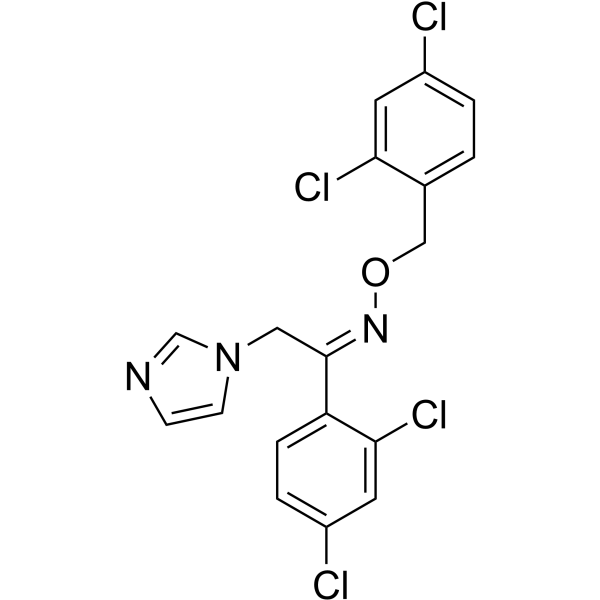
- HY-P5819
-
|
|
Wnt
APC
PROTACs
β-catenin
|
Cancer
|
|
xStAx-VHLL is a PROTAC β-catenin degrader that manifests strong inhibition of Wnt signaling and sustains degradation of β-catenin in cancer cells and the intestinal organoids derived from wild-type and APC –/– mice. xStAx-VHLL can be used as a promising anticancer agent .
|
-

- HY-162227
-
|
|
Microtubule/Tubulin
Apoptosis
|
Cancer
|
|
Antitumor agent-138 (compound 5b) is an inhibitor against tubulin polymerization at tubulin colchicine-binding sites, with IC50 of 1.87 μM. Antitumor agent-138 arrests the cell cycle at G2/M phase and induces an apoptosis in MCF-7 cells. Antitumor agent-138 inhibits cells migration and angiogenesis .
|
-
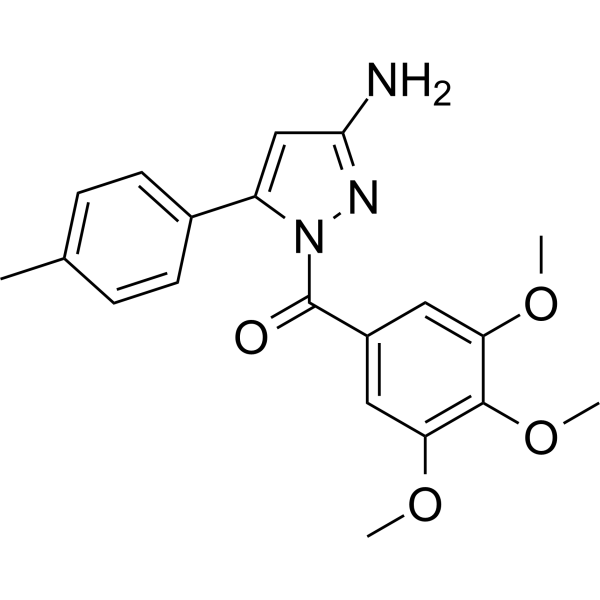
- HY-P1925A
-
|
|
PI3K
Reactive Oxygen Species
Apoptosis
|
Cancer
|
|
GO-203 TFA is a potent MUC1-C oncoprotein inhibitor. GO-203 TFA is an all D-amino acid peptide that consists of a poly-R transduction domain linked to a CQCRRKN motif that binds to the MUC1-C cytoplasmic tail and blocks MUC1-C homodimerization. GO-203 TFA downregulates TIGAR (TP53-induced glycolysis and apoptosis regulator) protein synthesis by inhibiting the PI3K-AKT-S6K1 pathway. GO-203 TFA induces the production of ROS and loss of mitochondrial transmembrane potential. GO-203 TFA inhibits the growth of colon cancer cells in vitro and as xenografts in nude mice .
|
-
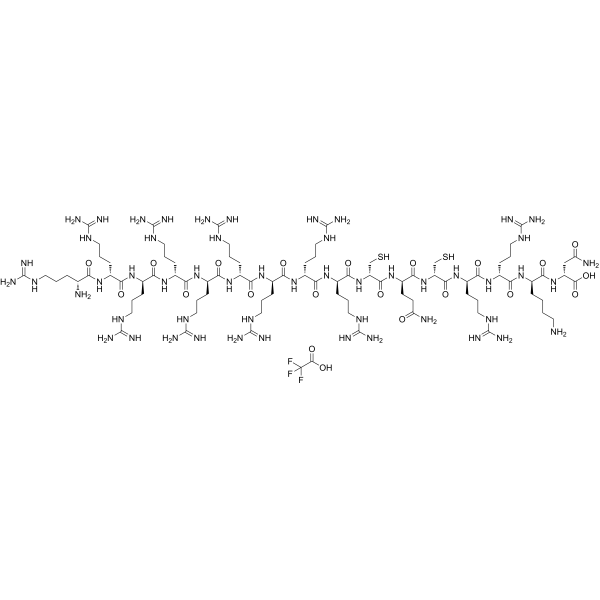
- HY-112683
-
V-9302
Maximum Cited Publications
9 Publications Verification
|
ASCT
|
Cancer
|
|
V-9302 is a competitive antagonist of transmembrane glutamine flux. V-9302 selectively and potently targets the amino acid transporter ASCT2 (SLC1A5) not ASCT1. V-9302 inhibits ASCT2-mediated glutamine uptake (IC50=9.6 µM) in HEK-293 cells .
|
-
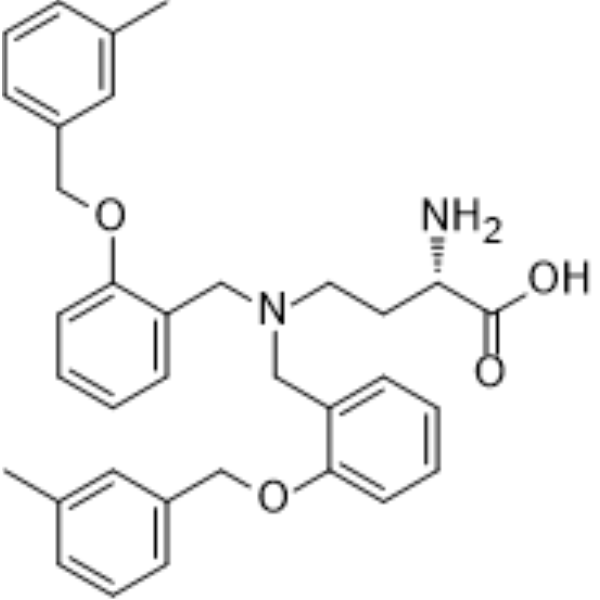
- HY-112683A
-
|
|
ASCT
|
Cancer
|
|
V-9302 hydrochloride is a competitive antagonist of transmembrane glutamine flux. V-9302 hydrochloride selectively and potently targets the amino acid transporter ASCT2 (SLC1A5) not ASCT1. V-9302 hydrochloride inhibits ASCT2-mediated glutamine uptake (IC50=9.6 µM) in HEK-293 cells .
|
-
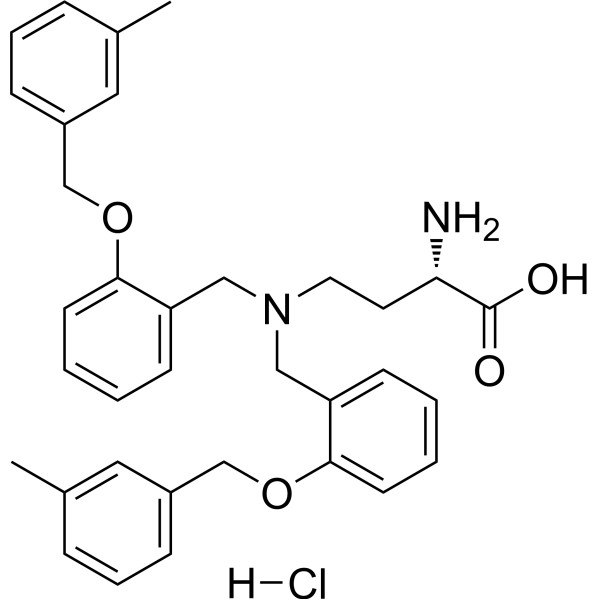
- HY-143412
-
|
|
HDAC
DNA/RNA Synthesis
Apoptosis
|
Cancer
|
|
MIR002 is a potent and orally active DNA polymerase α (POLA1) and HDAC 11 dual inhibitor. MIR002 induces acetylation of p53, activation of p21, G1/S cell cycle arrest, and apoptosis. MIR002 shows significant antitumor activity in vivo .
|
-
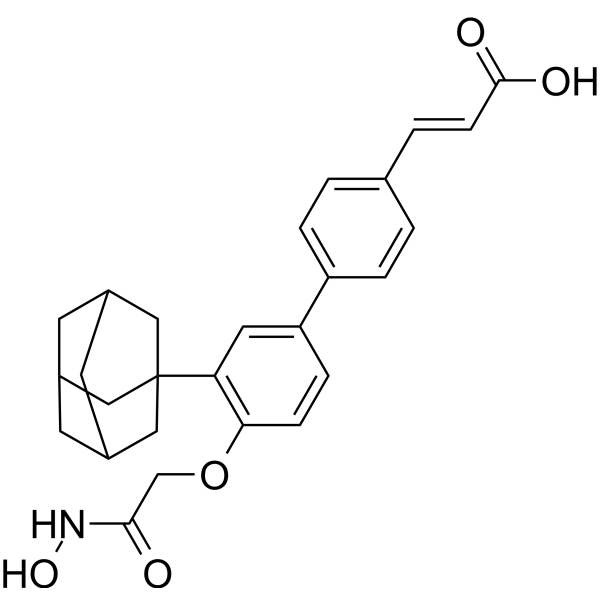
- HY-146715
-
|
|
Microtubule/Tubulin
Apoptosis
|
Cancer
|
|
IDO/Tubulin-IN-2 (HT2) is a potent TDO and tubulin inhibitor. IDO/Tubulin-IN-2 also shows potent activity against U87, HepG2, A549, HCT-116, and LO2 cancer cell lines, with IC50 values of 0.43, 0.036, 0.041, 0.095 and 1.04 μM, respectively. IDO/Tubulin-IN-2 remarkably promotes the antitumor activity .
|
-
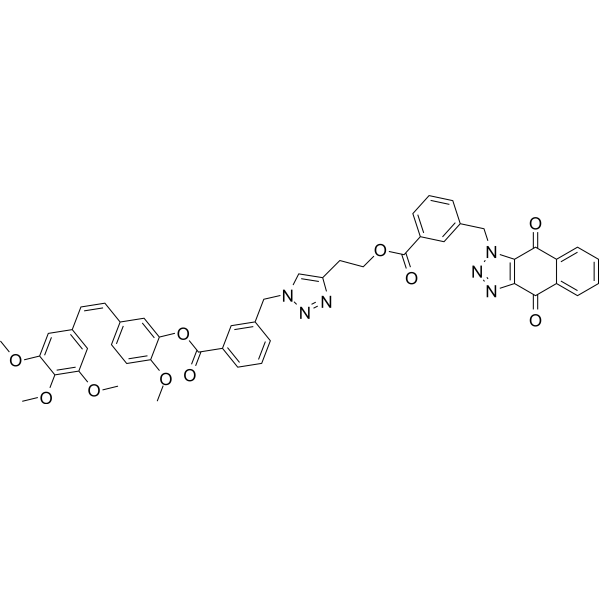
- HY-145844
-
|
|
EGFR
Apoptosis
|
Cancer
|
|
EGFR-IN-44 (Compound 6a) is a potent, orally active EGFR tyrosine kinase inhibitor with an IC50 of 4.11 nM. EGFR-IN-44 induces cell apoptosis and shows an oral bioavailability value of 33.57%. EGFR-IN-44 can be studied for non-small-cell lung cancers .
|
-
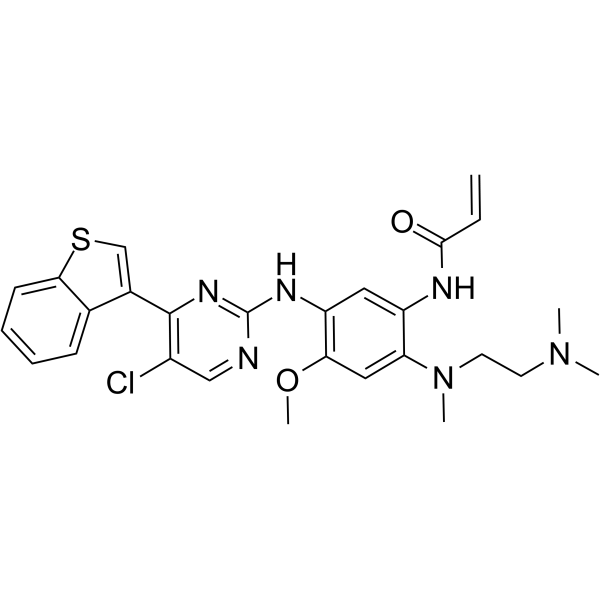
- HY-158005
-
|
|
Apoptosis
|
Cancer
|
|
Anticancer agent 195 (Compound 10) is an inhibitor for ELF3-MED23 PPI with Ki of 0.68 μM. Anticancer agent 195 induces apoptosis and exhibits antitumor activity .
|
-
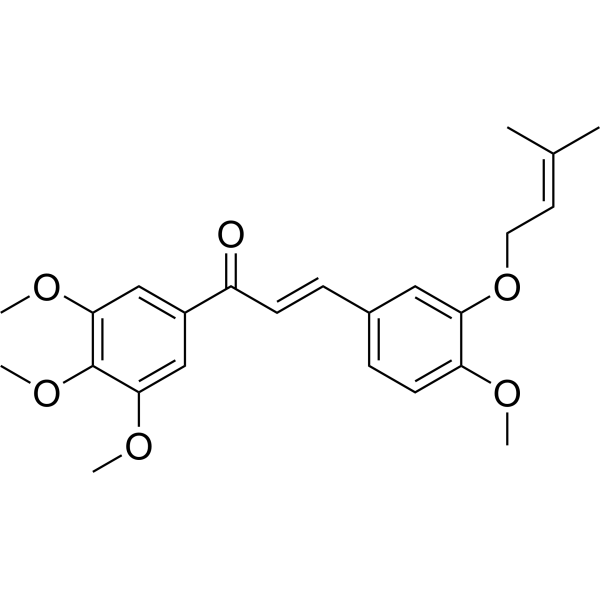
- HY-117235
-
-
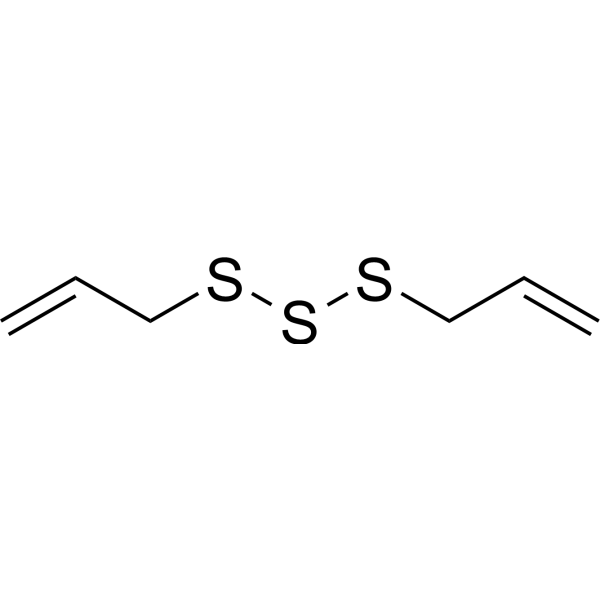
- HY-146540
-
|
|
HIF/HIF Prolyl-Hydroxylase
Apoptosis
MDM-2/p53
|
Cancer
|
|
GEM-5 is a gemcitabine-based conjugate containing a HIF-1α inhibitor (YC-1) (IC50=30 nM). GEM-5 can significantly down-regulate the expression of HIF-1α and up-regulate the expression of tumor suppressor p53. GEM-5 induces the apoptosis of A2780 cells and inhibits tumor growth .
|
-
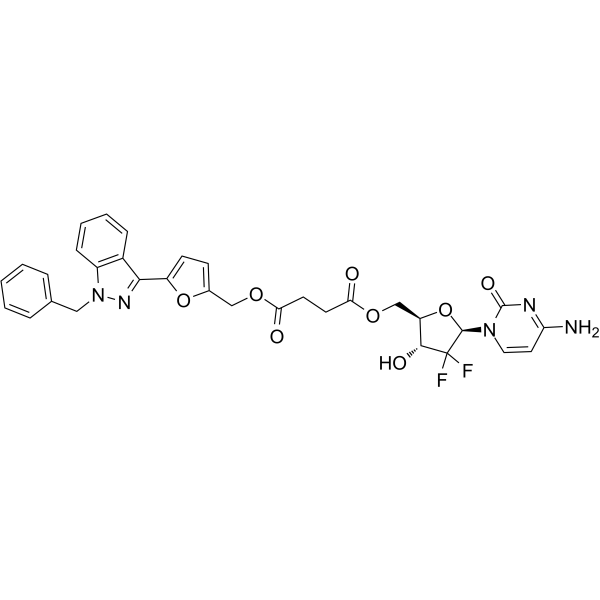
- HY-150613
-
|
|
Epigenetic Reader Domain
PARP
Apoptosis
|
Cancer
|
|
PARP1/BRD4-IN-2 is a potent and selective PARP1 and BRD4 inhibitor with IC50 values of 197 nM and 238 nM, respectively. PARP1/BRD4-IN-2 inhibits DNA damage repair, arrests G0/G1 transition and induces apoptosis. PARP1/BRD4-IN-2 has anti-tumor activity in MDA-MB-468 xenograft mouse model. PARP1/BRD4-IN-2 can be used for researching triple-negative breast cancer (TNBC) .
|
-
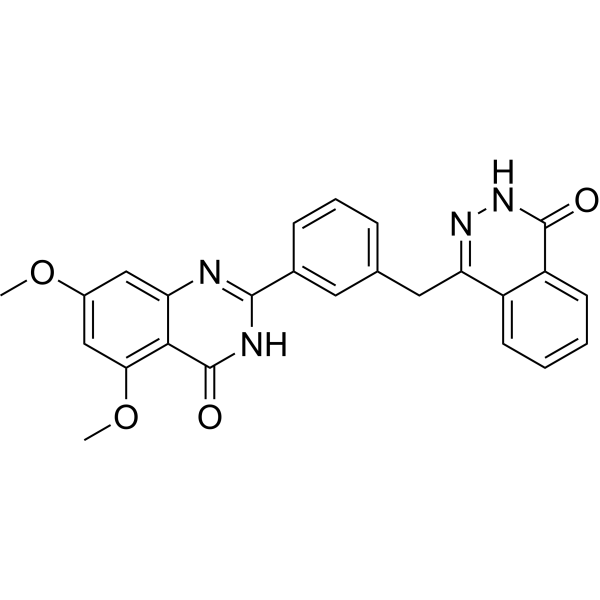
- HY-121619
-
|
|
Apoptosis
|
Inflammation/Immunology
Cancer
|
|
Jacaric acid is a conjugated linolenic acid, which inhibits viability in cells PC-3 (IC50 is 11.8 μM), LNCaP (IC50 is 2.2 μM) and DLD-1, induces apoptosis and necrosis . Jacaric acid exhibits anticaner activity against prostate cancer and adenocarcinoma . Jacaric acid exhibits immunomodulating activity in murine peritoneal macrophages as an immunopotentiator . Jacaric acid is orally active.
|
-
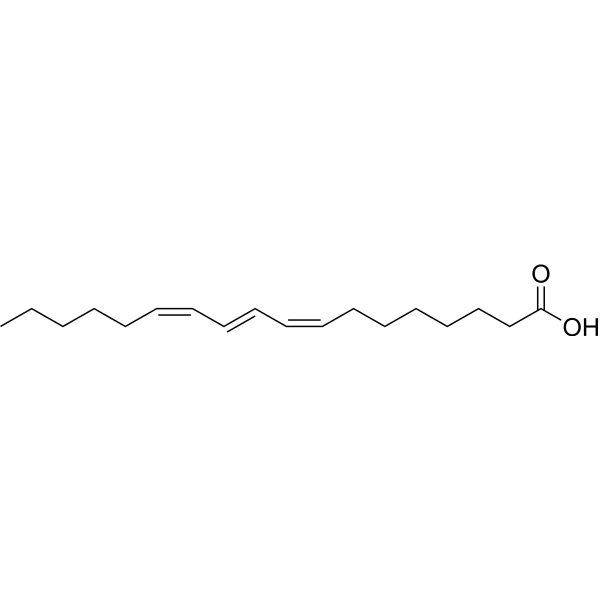
- HY-146617
-
|
|
Glutaminase
Apoptosis
|
Cancer
|
|
GLS1 Inhibitor-4 (compound 41e) is a potent GLS1 inhibitor with an IC50 of 11.86 nM. GLS1 Inhibitor-4 shows antiproliferative activity, good metabolic stability, robust GLS1 binding affinity. GLS1 Inhibitor-4 blocks the glutamine metabolism and induce the production of ROS. GLS1 Inhibitor-4 induces apoptosis and shows antitumor activity .
|
-
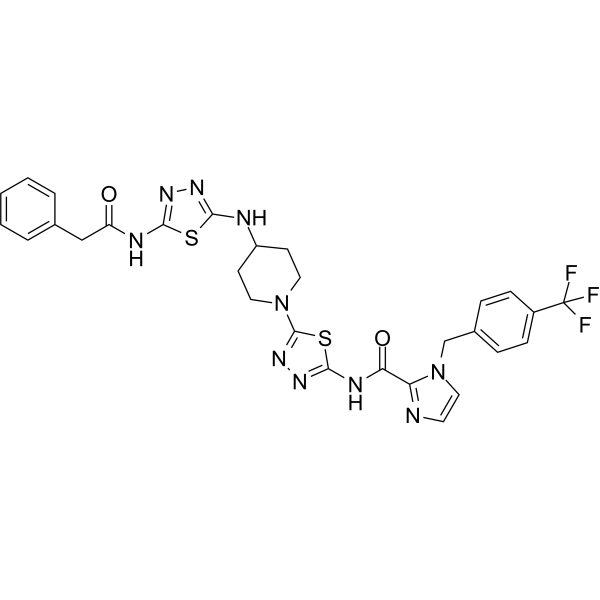
- HY-150636
-
|
|
Autophagy
Apoptosis
|
Cancer
|
|
Autophagy-IN-1 is a potent autophagy/mitophagy inhibitor, acts by selectively increasing the autophagic flux while blocking the autophagosome-lysosome fusion in cancer cells. Autophagy-IN-1 can induce apoptosis and cell cycle arrest. Autophagy-IN-1 significantly inhibits tumor growth in an HCT116 xenograft mouse model and with low toxicity. Autophagy-IN-1 can be used for researching colorectal cancer .
|
-
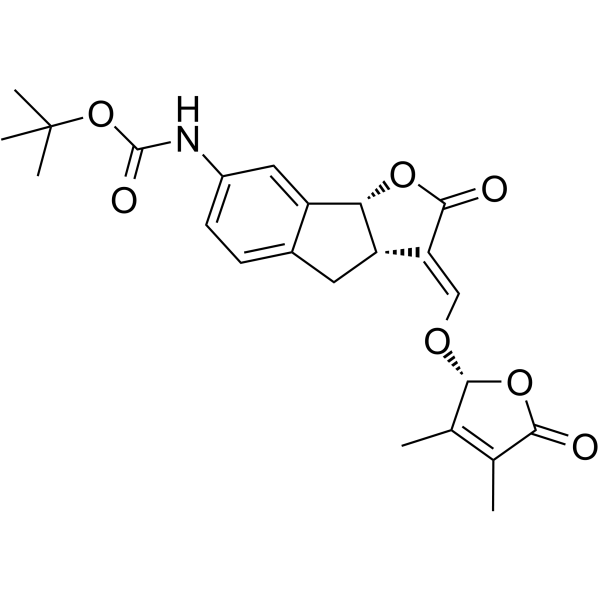
- HY-163340
-
|
|
Glucocorticoid Receptor
Androgen Receptor
|
Cancer
|
|
GA32 (compound 58r) is potent androgen receptor (AR)/glucocorticoid receptor (GR) dual inhibitor with IC50 values of 0.13 μM and 0.83 μM for AR and GR, respectively. GA32 inhibits the proliferation of Enzalutamide (HY-70002) resistance castration-resistant prostate cancer both in vitro and in vivo .
|
-
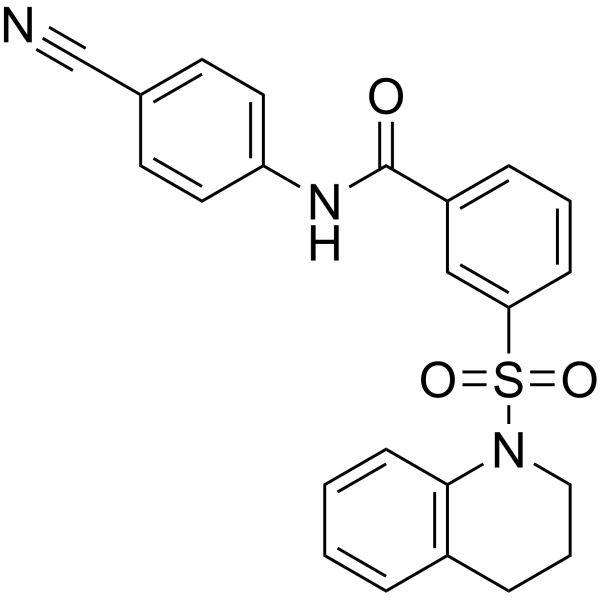
- HY-155489
-
|
|
Anaplastic lymphoma kinase (ALK)
Apoptosis
|
Cancer
|
|
DDO-2728 (compound 19) is a selective AlkB homologue 5 (ALKBH5) inhibitor with an IC50 of 2.97 μM. DDO-2728 increases the abundance of N 6 methyladenosine (m 6A) modifications, inducing cell apoptosis and cycle arrest. DDO-2728 suppresses tumor growth in the MV4−11 xenograft model with favorable safety profile, shows the potential of targeting ALKBH5 in cancer research .
|
-
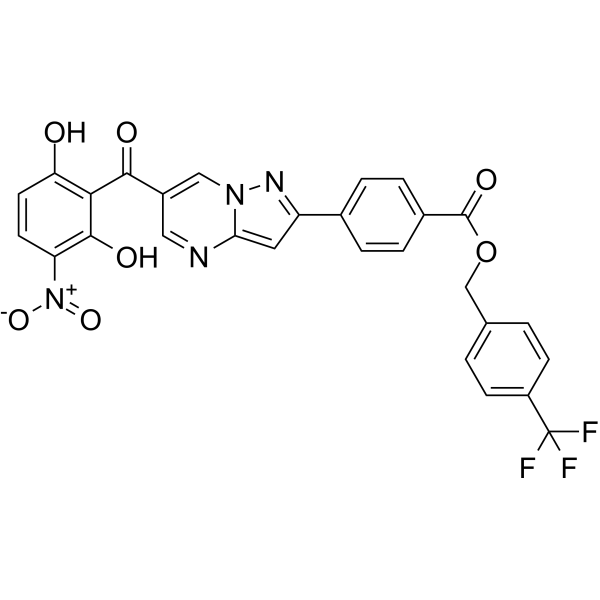
- HY-163034
-
|
|
Apoptosis
Reactive Oxygen Species
|
Cancer
|
|
Antitumor photosensitizer-5 (Ru2) is a photosensitizer which effectively target tumor mitochondria with an IC50 of 0.3 μM for phototoxicity to A549 cells. Under 460 nm light irradiation, antitumor photosensitizer-5 induces the generation of reactive oxygen species and NADH depletion, causes mitochondrial damage and activation of caspase-3, inducing apoptosis and suppressing cell migration. Antitumor photosensitizer-5 has the potential to prevent the growth of malignant tumors, therefore, shows the potential to be applied to photodynamic therapy .
|
-
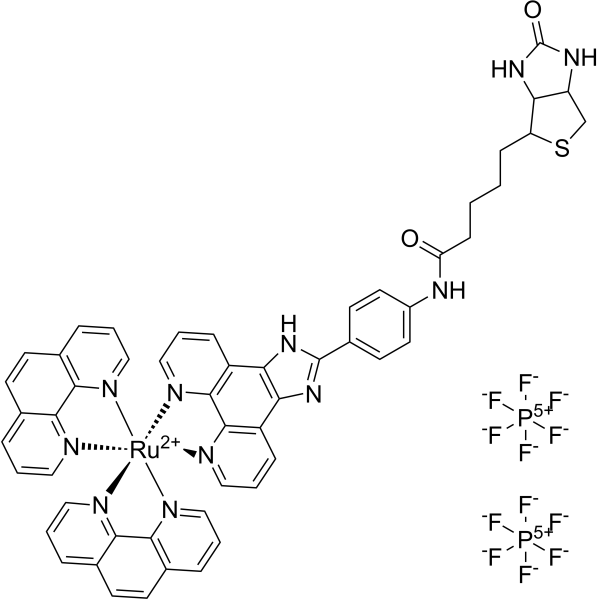
| Cat. No. |
Product Name |
Type |
-
- HY-15096
-
|
FJ-776
|
Dyes
|
|
MKT-077 (FJ-776), a highly water-soluble mitochondrial dye, has significant antitumor activity . MKT-077 exhibits low cytotoxicity, and inhibits broad-spectrum human cancer cell lines (colon cancer, breast cancer, pancreatic cancer). MKT-077 inhibits the growth of tumor in nude mice enograft tumor model. Ex/Em=488/543 nm .
|
-
- HY-D1460
-
|
|
Fluorescent Dyes/Probes
|
|
Fluorescein Di-β-D-Glucuronide, a fluorescent probe, can be utilized to non-invasively image the intestinal bacterial β-glucuronidase activity in nude mice. Fluorescein Di-β-D-Glucuronide-based imaging reveals the in vitro and in vivo activity of intestinal bacterial β-glucuronidase, which would facilitate pharmacodynamic studies of specific bacterial β-glucuronidase inhibitors in animal studies .
|
| Cat. No. |
Product Name |
Target |
Research Area |
-
- HY-N6693
-
|
NSC 122023
|
Apoptosis
Antibiotic
Autophagy
Fungal
|
Infection
Others
Cancer
|
|
Valinomycin is a potassium-specific ionophore, the valinomycin-K + complex can be incorporated into biological bilayer membranes with the hydrophobic surface of valinomycin, destroys the normal K + gradient across the membrane, and as a result kills the cells, incorporating into liposomes can significantly reduces the cytotoxicity and enhances the targeting effect. Valinomycin exhibits antibiotic, antifungal, antiviral, antitumor and insecticidal efficacy, thus can be used for relevant research .
|
-
- HY-P1925A
-
|
|
PI3K
Reactive Oxygen Species
Apoptosis
|
Cancer
|
|
GO-203 TFA is a potent MUC1-C oncoprotein inhibitor. GO-203 TFA is an all D-amino acid peptide that consists of a poly-R transduction domain linked to a CQCRRKN motif that binds to the MUC1-C cytoplasmic tail and blocks MUC1-C homodimerization. GO-203 TFA downregulates TIGAR (TP53-induced glycolysis and apoptosis regulator) protein synthesis by inhibiting the PI3K-AKT-S6K1 pathway. GO-203 TFA induces the production of ROS and loss of mitochondrial transmembrane potential. GO-203 TFA inhibits the growth of colon cancer cells in vitro and as xenografts in nude mice .
|
-
- HY-163001
-
|
|
Autophagy
p62
Atg8/LC3
|
Cancer
|
|
Microcolin H is a marine lipopeptide and phosphatidylinositol transfer protein ligand that targets PITPα/β. Microcolin H increases the conversion of LC3I to LC3II and reduces p62 levels in cancer cells, leading to autophagy cell death (Autophagy). Microcolin H effectively inhibits tumor development and has anti-proliferative activity in nude mouse subcutaneous tumor models .
|
-
- HY-P5819
-
|
|
Wnt
APC
PROTACs
β-catenin
|
Cancer
|
|
xStAx-VHLL is a PROTAC β-catenin degrader that manifests strong inhibition of Wnt signaling and sustains degradation of β-catenin in cancer cells and the intestinal organoids derived from wild-type and APC –/– mice. xStAx-VHLL can be used as a promising anticancer agent .
|
| Cat. No. |
Product Name |
Category |
Target |
Chemical Structure |
Your information is safe with us. * Required Fields.
Inquiry Information
- Product Name:
- Cat. No.:
- Quantity:
- MCE Japan Authorized Agent:















































































